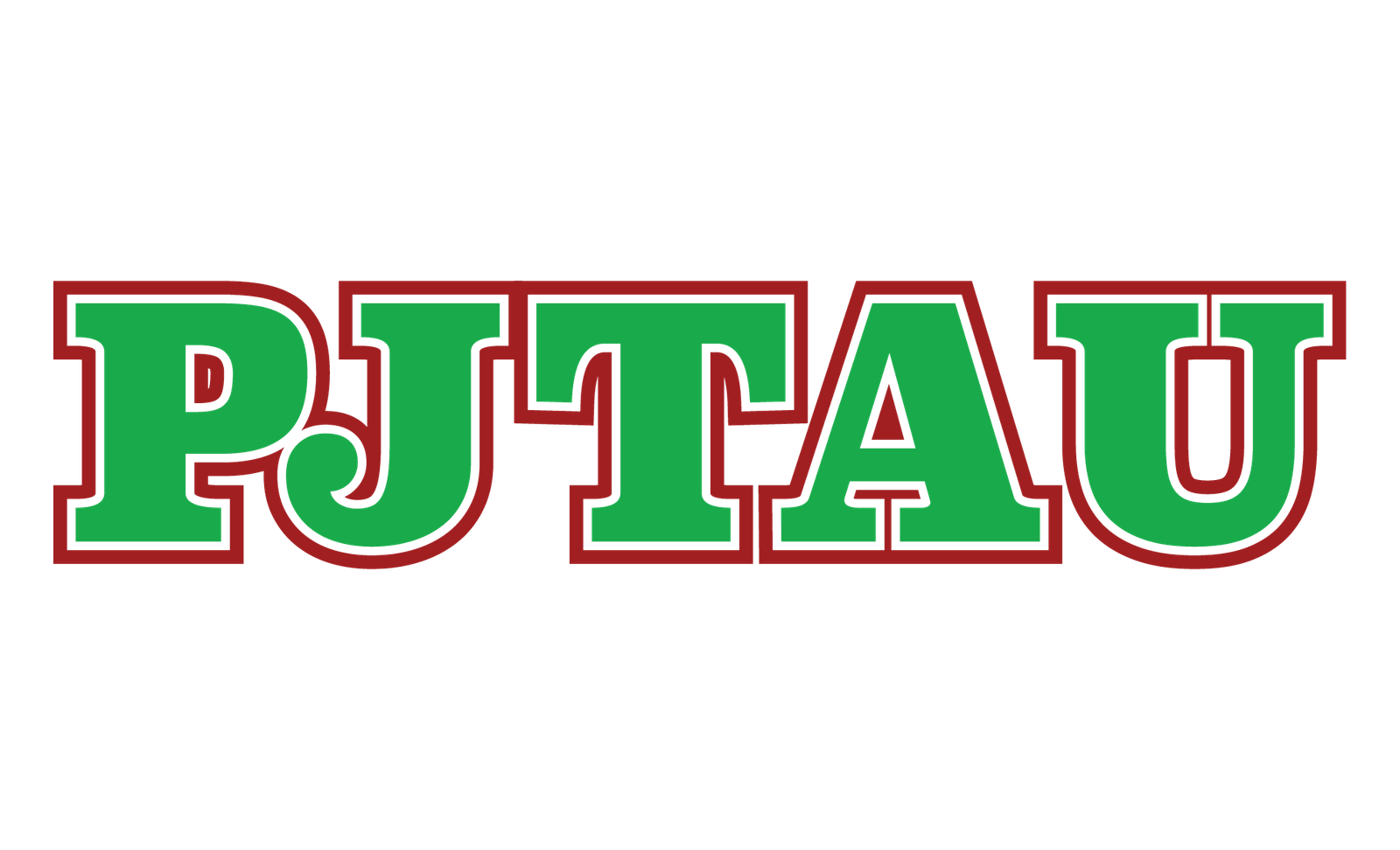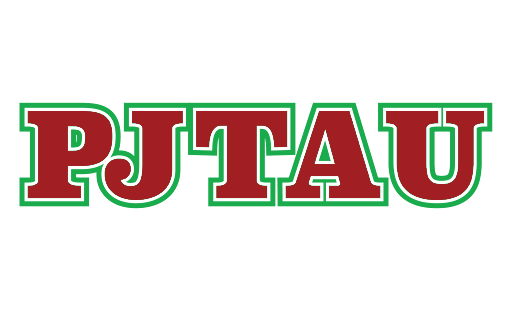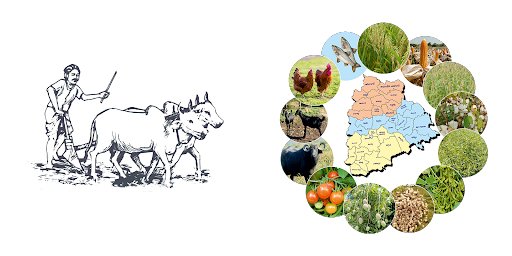Research
- Introduction
- Agro Climatic Zones
- Varieties Developed
- Agro Technologies
- Externally Funded projects
- Consultancy Projects
- Seed Production
- Patents
- PPVFRA & NBPGR
- Awards & Recognitions
- IPR Cell
- Staff Details
- Contact Us
Professor Jayashankar Telangana Agricultural University (PJTAU), inherits a rich legacy of agricultural research and innovation from the erstwhile Andhra Pradesh Agricultural University (APAU), founded in 1964. The university serves as a premier institution for agricultural research, education, and extension services in Telangana, fostering advancements in sustainable farming systems, crop improvement, and resource management
Mission
To align agricultural research and development with the United Nations Sustainable Development Goals (UN-SDGs) by formulating and implementing sustainable crop production systems. The university is committed to ensuring food and nutritional security and improving farmers’ livelihoods through the development and dissemination of eco-friendly, innovative technologies that enhance resilience and sustainability in agricultural systems.
Vision
To enhance agricultural sustainability, productivity, and nutritional security through the integration of climate-resilient agronomic practices, genetic advancements, and innovative stress-mitigation strategies, while ensuring the conservation of natural resources for future generations.
Major Areas
- Development of Climate-Resilient Cultivars: Breeding and deploying climate-smart crop varieties to enhance adaptation to biotic and abiotic stresses.
- Sustainable Seed Systems: Strengthening community-based seed production and distribution networks to ensure quality seed availability and genetic purity.
- Sustainable Water and Soil Management: Implementing conservation agriculture and precision irrigation technologies for improved water use efficiency and soil sustainability.
- Precision Agronomy and Resource Optimization: Enhancing input use efficiency, soil health, and environmental sustainability through site-specific crop management.
- Integrated Pest and Disease Management: Developing eco-friendly, cost-effective, and precision-based plant protection strategies to minimize yield losses.
- Farm Mechanization: Advancing automation and mechanization across the crop production cycle, from land preparation to harvesting, for labor and cost efficiency.
- Market Intelligence and Agri-Business Linkages: Providing real-time market forecasts, price trend analysis, and value chain integration to enhance farmers’ income and decision-making.
- Post-Harvest Processing and Value Addition: Innovating storage, processing, and food technology solutions to improve shelf life, quality, and marketability of agricultural products.
- Extension and Technology Transfer: Strengthening farmer-scientist interactions, capacity-building programs, and digital extension platforms to ensure rapid dissemination and adoption of innovations.
Innovative Research
Cutting-Edge Agricultural Technologies
- A total of 215 farm-implementable technologies have been developed across natural resource management, crop protection, mechanization, and value addition, enhancing agricultural productivity and sustainability.
- Thirty-three innovative farm implements have been designed, including multi-crop threshers, groundnut pod strippers, and laser-guided land levelers, improving precision agriculture and labor efficiency.
Drones and Digital Agriculture
- Telangana’s first DGCA-approved Drone Academy with scope of small and medium category has been established, featuring patented drone-based seed dispensing technology for rice cultivation, revolutionizing precision agriculture.
- A total of 280 drone pilots, including 44 women, have been trained under the Namo Drone Didi initiative, fostering the adoption of advanced aerial technologies in sustainable farming practices.
- Patented technology for drone seeding device for wet direct seeded rice.
Biotechnology Breakthroughs
- The first biotech-developed rice varieties, WGL 1487 and WGL 1119, have been officially notified by the CVRC, marking a significant advancement in genetic crop improvement.
- The Biotechnology Institute is equipped with state-of-the-art research facilities, enabling cutting-edge advancements in molecular breeding, genetic engineering, and biotechnological innovations.
Specialized Research Centers
- MFPI – Quality Control Laboratory: An NABL-accredited facility providing analytical and quality profiling services for university crops and commercial testing. The laboratory houses an AERB-authorized GC-5000 Gamma Irradiator (Category-I) with Cobalt-60 (⁶⁰Co), facilitating radiation-based research applications.
- Pesticide Residue Laboratory: An NABL-accredited laboratory offering testing for 121 pesticide residues. Advanced analytical techniques, including LC-MS/MS (for 79 residues) and GC-MS/MS (for 42 residues), enable detection at a sensitivity threshold of 0.01 mg/kg.
- Millet Processing & Incubation Centre: Engaged in the commercialization of FSSAI-approved millet-based products under the brand MILLET PLUS, promoting value addition and market expansion.
Agro Climatic Zones of Telangana
Telangana is apportioned into three agro-climatic zones based on the geographical characteristics such as rainfall, temperature, nature of soils etc. as follows:
PJTAU is committed to advancing agricultural sustainability, food security, and rural development through innovation, strategic collaborations, and farmer-centric initiatives

Research Stations & Schemes
| S.no | Name of the Station | Head and Address | Photos | Click for more details |
|---|---|---|---|---|
| 1 | North Telangana Zone | Dr. S. Harish Kumar Sharma, Associate Director of Research, RARS, Jagtial. |  |
View Details |
| 2 | Central Telangana Zone | Dr. Ravula Uma Reddy, Associate Director of Research, RARS, Warangal |  |
View Details |
| 3 | Southern Telangana Zone | Lavuri Krishna, Associate Director of Research, RARS, Palem |  |
View Details |
| 4 | Director ARI | Dr. Y. Chandra Mohan, Director, ARI |  |
View Details |
| 5 | Director-C-NARE | Dr. K. P. Vani, Director, C-NARE |  |
View Details |
| 6 | Director-IBT | Dr. C. Sameer Kumar, Director | 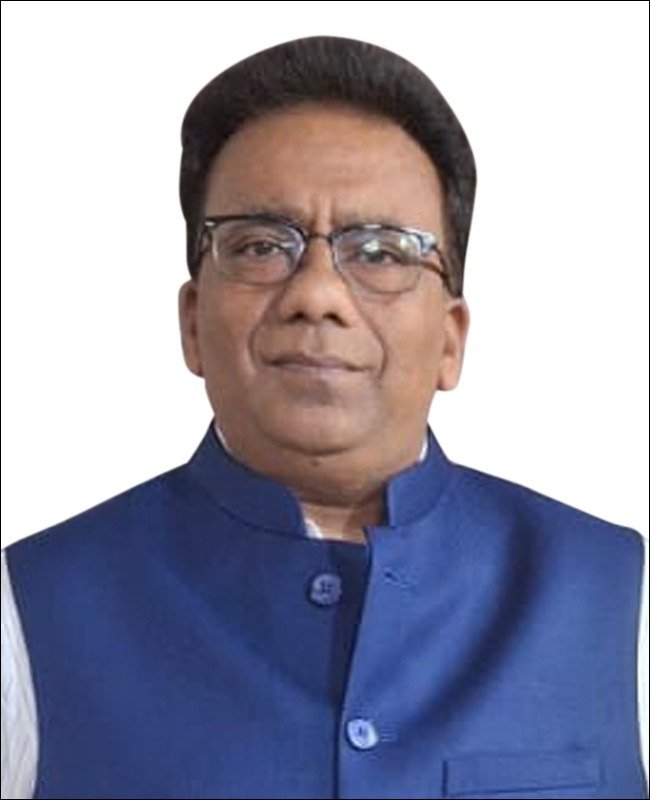 |
View Details |
| 7 | Director-SRTC | Dr. Ch. Damodar Raju, Director-SRTC | View Details | |
| 8 | Director Seed | Dr. M. V. Nagesh Kumar, Director |  |
View Details |
| 9 | Director C-DAT | Balaji Naik, Director C-DAT |  |
View Details |
| 10 | MFPI-Quality Control Lab | Dr. K. Aparna, Principal Scientist & Head |  |
View Details |
| 11 | AICRP on Women in Agriculture | Dr. R. Neela Rani, Principal Scientist & Unit Coordinator |  |
View Details |
| 12 | Cost of Cultivation Scheme | Dr. R. Vijaya Kumari (Professor & Head) |  |
View Details |
| 13 | Mushroom Scheme | Dr. B. Rajeswari, Professor |  |
View Details |
Cereals and Millets
- Rice Improvement: Developed over 38 high-yielding rice varieties with enhanced resistance to major pests and diseases, superior cooking quality, and improved nutritional attributes (2014–2024). Notably, RNR 15048 (Telangana Sona), a low glycemic index variety, has gained prominence for its export potential.
- Maize Hybrids for Enhanced Productivity: DHM 117 and DHM 121 have been extensively adopted, covering over 1 million hectares across multiple states in India. Four maize hybrids have been released in the last decade (2014–2024), including two at the national level (Karimnagar Makka-1 and DHM 206) and two at the state level (KNMH 141 and DHM 182), contributing to yield enhancement and climate resilience. These hybrids have also been successfully commercialized by 45 private-sector seed companies.
- Climate-Resilient Millet Varieties: Developed six improved sorghum varieties (CSV 31, PYPS 2, CSV 41, PSV 516, STV 68, and STV 55), one pearl millet hybrid (PBH 1625), and one finger millet variety (PRS 38), offering enhanced adaptability to diverse agro-climatic conditions and improved nutritional profiles.
Pulses and Oilseeds
- Pigeonpea (Cajanus cajan) Improvement: Released six high-yielding pigeonpea varieties (PRG 176, WRGE 97, WRGE 93, WRGE 121, WRG 55, and TDRG 59) and one hybrid (ICPH 2740) over the past decade (2014–2024). These cultivars have demonstrated extensive adaptability and are widely cultivated across various districts of Telangana.
- Mungbean (Vigna radiata) and Other Pulses: Developed three improved greengram varieties (MGG 351, MGG 385, and WGG 42), along with one variety each in blackgram (MBG 1070) and chickpea (Adilabad Shanaga 2), contributing to enhanced productivity and resilience in pulse-based cropping systems.
- Sesame (Sesamum indicum) and Oilseed Crop Enhancement: Released four sesame varieties (JCS 2454, JCS 1020, JCS 3202, and JCS 3287), two soybean varieties (Basara and AISb 50), and one variety each in groundnut (JCG 2141) and castor (PCS 362) during the period 2014–2024, supporting diversification and sustainability in oilseed production.
- Over the past decade (2014–2024), more than 1.36 lakh quintals of high-quality seeds have been produced, reinforcing Telangana’s recognition as the “Seed Bowl of India.” The annual State-Level Seed Mela facilitates the distribution of certified seeds under TELANGANA SEEDS, ensuring access to superior genetic material to farmers. Additionally, 18 seed processing units and two cold storage facilities have been established to enhance seed quality, viability, and shelf-life.
Abstract Year Wise
| RICE VARIETIES | ||||
|---|---|---|---|---|
| Sl. No | Variety Name | Released Year | CVRC/SVRC | Name of the Station |
| 1 | Telangana Sona (RNR 15048) | 2015 | SVRC | The Principal Scientist & Head, Institute of Rice Research, ARI, Rajendranagar – 30 |
| 2 | Bathukamma (JGL 18047) | 2015 | SVRC | The Associate Director of Research, RARS, Jagtial – 505529 |
| 3 | Somnath (WGL 347) | 2015 | SVRC | The Associate Director of Research, RARS, Warangal – 506 007 |
| 4 | Kunaram Sannalu (KNM 118) | 2015 | SVRC | The Scientist & Head, ARS, Kunaram, Mdl. Kalvasrirampur, Dist. Peddapalli – 505 174 |
| 5 | Jagtiala Rice 1 (JGL 24423) | 2019 | SVRC | The Associate Director of Research, RARS, Jagtial – 505529 |
| 6 | Kunaram Rice 1 (KNM 733) | 2019 | SVRC | The Scientist & Head, ARS, Kunaram, Mdl. Kalvasrirampur, Dist. Peddapalli – 505 174 |
| 7 | Warangal Rice 1 (WGL 915) | 2019 | SVRC | The Associate Director of Research, RARS, Warangal – 506 007 |
| 8 | Telangana Vari 1 (WGL 739) | 2019 | CVRC | |
| 9 | Telangana Vari 2 (WGL 697) | 2020 | CVRC | |
| 10 | Telangana Vari 3 (JGL 21078) | 2020 | CVRC | The Associate Director of Research, RARS, Jagtial – 505529 |
| 11 | Rajendranagar Vari-1 (RNR 11718) | 2021 | SVRC & CVRC | The Principal Scientist & Head, Institute of Rice Research, ARI, Rajendranagar – 500030 |
| 12 | Rajendranagar Vari-2 (RNR 15435) | 2021 | SVRC | |
| 13 | Kampasagar Vari-1 (KPS 2874) | 2021 | SVRC | The Senior Scientist & Head, ARS, Kampasagar-508 207, Post: Babusaipet, Mandal: Tripuraram; Dist: Nalgonda |
| 14 | Kunaram Vari-2 (KNM 1638) | 2021 | SVRC | The Scientist & Head, ARS, Kunaram, Mdl. Kalvasrirampur, Dist. Peddapalli – 505 174 |
| 15 | Warangal Vari-2 (WGL 962) | 2021 | SVRC | The Associate Director of Research, RARS, Warangal – 506 007 |
| 16 | Telangana Vari-4 (JGL 25958) | 2021 | CVRC | The Associate Director of Research, RARS, Jagtial – 505529 |
| 17 | Jagtial Vari-2 (JGL 28545) IET 27448 | 2022 | SVRC | The Associate Director of Research, RARS, Jagtial – 505529 |
| 18 | Jagtial Vari-3 (JGL 27356) IET 30064 | 2022 | SVRC | The Associate Director of Research, RARS, Jagtial – 505529 |
| 19 | Rajendranagar Vari-3 (RNR 15459) IET 28567 | 2022 | SVRC | The Principal Scientist & Head, Institute of Rice Research, ARI, Rajendranagar |
| 20 | Rajendranagar Vari-4 (RNR 21278) IET 27107 | 2022 | SVRC | The Principal Scientist & Head, Institute of Rice Research, ARI, Rajendranagar |
| 21 | Rajendranagar Vari-5 (RNR 29325) IET 29789 | 2022 | SVRC | The Principal Scientist & Head, Institute of Rice Research, ARI, Rajendranagar |
| 22 | Telangana Rice-5 (RNR 28362) | 2022 | CVRC | The Principal Scientist & Head, Institute of Rice Research, ARI, Rajendranagar – 500030 |
| 23 | Telangana Vari-6 (KNM 7048) | 2023 | CVRC | The Scientist & Head, ARS, Kunaram, Mdl. Kalvasrirampur, Dist. Peddapalli – 505174 |
| 24 | Telangana Vari-7 (KNM 6965) | 2023 | CVRC | The Scientist & Head, ARS, Kunaram, Mdl. Kalvasrirampur, Dist. Peddapalli – 505174 |
| 25 | Telangana Vari-8 (WGL-1487) | 2022 | CVRC | The Associate Director of Research, RARS, Warangal – 506007 |
| 26 | Telangana Rice 7037 (KNM 7037) | 2024 | The Scientist & Head, ARS, Kunaram, Mdl. Kalvasrirampur, Dist. Peddapalli – 505174 | |
| 27 | Telangana Rice 12509 (KNM 12509) | 2025 | The Scientist & Head, ARS, Kunaram, Mdl. Kalvasrirampur, Dist. Peddapalli – 505174 | |
| 28 | Rajendranagar Vari 28361 (RNR 28361) | 2023 | SVRC | Institute of Rice Research, ARI, Rajendranagar – 500030 |
| 29 | Warangal Vari 1119 (WGL 1119) | 2023 | SVRC | RARS, Warangal – 506007 |
| 30 | Telangana Rice – 7037 (KNM 7037) | 2023 | CVRC | ARS, Kunaram, Peddapalli – 505174 |
| 31 | Telangana Rice – 1289 (WGL 1289) | 2023 | CVRC | RARS, Warangal – 506007 |
| 32 | Warangal Vari-1246 (WGL-1246) (IET 28406) | 2024 | SVRC | Regional Agricultural Research Station, Warangal |
| 33 | Jagtiala Vari-33124 (JGL-33124) (IET 28764) | 2024 | SVRC | Regional Agricultural Research Station, Polasa, Jagtial |
| 34 | Jagtiala Vari-28639 (JGL-28639) (IET-30636) | 2024 | SVRC | Regional Agricultural Research Station, Polasa, Jagtial |
| 35 | Kampasagar Vari-6251 (KPS-6251) (IET 29975) | 2024 | SVRC | Agricultural Research Station, Kampasagar, Tripuraram Mandal, Dist. Nalgonda |
| 36 | Rudrur Vari-1162 (RDR1162) (IET 29160) | 2024 | SVRC | Regional Sugarcane and Rice Research Station, Rudrur, Nizamabad |
| 37 | Rudrur Vari-1200 (RDR1200) | 2024 | SVRC | Regional Sugarcane and Rice Research Station, Rudrur, Nizamabad |
| MAIZE VARIETIES | ||||
|---|---|---|---|---|
| Sl. No | Variety Name | Released Year | CVRC/SVRC | Name of the Station |
| 38 | Karimnagar Makka -1 (KNMH 4010131) | 2015 | SVRC | Agricultural Research Station, Karimnagar – 505002 |
| 39 | Karimnagar Makka (KNMH 4010141) | 2017 | CVRC | |
| 40 | Telangana Makka – 3 (DHM 206) | 2023 | CVRC | Maize Research Station, Agricultural Research Institute, Rajendranagar – 30 |
| 41 | Rajendranagar Makka182 (DHM 182) (BН417182) | 2024 | SVRC | Maize Research Centre, Agricultural Research Institute, Hyderabad |
| SORGHUM VARIETIES | ||||
|---|---|---|---|---|
| Sl. No | Variety Name | Released Year | CVRC/SVRC | Name of the Station |
| 42 | Palamuru Jonna (SPV 2122 or CSV 31) | 2015 | CVRC | The Associate Director of Research, RARS, Palem, Nagarkurnool Dist-509 215 |
| 43 | Palem Pacha Jonna-1 (PYPS-2) | 2019 | SVRC | – |
| 44 | Telangana Jonna (CSV-41) | 2019 | CVRC | – |
| 45 | Tandur Jonna-1 (SVT 68) | 2021 | SVRC | The Principal Scientist & Head, ARS, Tandur, Vikarabad Dist-501 141 |
| 46 | Palem Jonna-1 (PSV 512) | 2021 | SVRC | The Associate Director of Research, RARS, Palem, Nagarkurnool Dist-509 215 |
| 47 | Tandur Jonna 55 (SVT 55) | 2023 | SVRC | ARS, Tandur, Vikarabad – 501 141 |
| REDGRAM VARIETIES | ||||
|---|---|---|---|---|
| Sl. No | Variety Name | Released Year | CVRC/SVRC | Name of the Station |
| 48 | Ujwala (PRG 176) | 2015 | SVRC | The Associate Director of Research, RARS, Palem, Nagarkurnool Dist-509 215 |
| 49 | Mannem Konda Kandi (ICPH 2740) | 2015 | SVRC | – |
| 50 | TDRG-4 (Hanuma) | 2015 | SVRC | The Principal Scientist & Head, ARS, Tandur, Vikarabad Dist-501 141 |
| 51 | Warangal Kandi 1 (WRGE 97) | 2019 | SVRC | The Associate Director of Research, RARS, Warangal – 506 007 |
| 52 | Telangana Kandi-1 (WRGE 93) | 2019 | CVRC | – |
| 53 | Telangana Kandi-2 (WRGE 121) | 2020 | CVRC | – |
| 54 | TDRG-59 (Telangana Kandi-3) | 2020 | CVRC | The Principal Scientist & Head, ARS, Tandur, Vikarabad Dist-501 141 |
| 55 | Warangal Kandi 2 (WRG 255) | 2021 | SVRC | The Associate Director of Research, RARS, Warangal – 506 007 |
| 56 | Telangana Kandi-3 (TDRG-59) | 2021 | CVRC | The Principal Scientist & Head, ARS, Tandur, Vikarabad Dist-501 141 |
| 57 | TDRG-272 (Telangana Kandi-4) | 2024 | CVRC | – |
| GREENGRAM VARIETIES | ||||
|---|---|---|---|---|
| Sl. No | Variety Name | Released Year | CVRC/SVRC | Name of the Station |
| 58 | Sri Rama (MGG 351) | 2015 | SVRC | The Principal Scientist & Head, Agricultural Research Station, Madhira-507 203, Khammam (Dt.) Telangana State |
| 59 | Yadadri (WGG 42) | 2015 | SVRC | The Associate Director of Research, RARS, Warangal – 506 007 |
| 60 | Madhira Pesara-1 (MGG 385) | 2021 | SVRC | The Principal Scientist & Head, Agricultural Research Station, Madhira-507 203, Khammam (Dt.) Telangana State |
| BLACKGRAM VARIETIES | ||||
|---|---|---|---|---|
| Sl. No | Variety Name | Released Year | CVRC/SVRC | Name of the Station |
| 61 | Madhira Minumu-01 (MBG 1070) | 2022 | SVRC | The Principal Scientist & Head, Agricultural Research Station, Madhira-507 203, Khammam (Dt.) Telangana State |
| CHICKPEA VARIETIES | ||||
|---|---|---|---|---|
| Sl. No | Variety Name | Released Year | CVRC/SVRC | Name of the Station |
| 62 | Adilabad Shanaga-2 (ADBeG-2) | 2025 | SVRC | Agricultural Research Station, Adilabad |
| GROUNDNUT VARIETIES | ||||
|---|---|---|---|---|
| Sl. No | Variety Name | Released Year | CVRC/SVRC | Name of the Station |
| 63 | JagtialaPalli – 1 (JCG 2141) | 2019 | SVRC | The Associate Director of Research, RARS, Jagtial – 505529 |
| SESAME/TIL VARIETIES | ||||
|---|---|---|---|---|
| Sl. No | Variety Name | Released Year | CVRC/SVRC | Name of the Station |
| 64 | Jagtiala Til-2 (JCS 2454) | 2021 | SVRC | The Associate Director of Research, RARS, Jagtial – 505529 |
| 65 | Jagtial Til-1 (JCS 1020) | 2022 | SVRC | |
| 66 | Telangana Til-1 (JCS 3202) | 2022 | CVRC | |
| 67 | Jagtiala Nuvvulu-3287 (JCS-3287) | 2024 | SVRC | Regional Agricultural Research Station, Polasa, Jagtial |
| SOYBEAN VARIETIES | ||||
|---|---|---|---|---|
| Sl. No | Variety Name | Released Year | CVRC/SVRC | Name of the Station |
| 68 | Basara (ASF-22) | 2018 | SVRC | Agricultural Research Station, Adilabad – 504002 |
| 69 | Adilabad Indore Soyachikkudu-1 (AIsb-50) | 2021 | SVRC | |
| MILLET VARIETIES | ||||
|---|---|---|---|---|
| Sl. No | Variety Name | Released Year | CVRC/SVRC | Name of the Station |
| 70 | Palem Ragi 38 (PRS 38) | 2023 | SVRC | RARS, Palem, Nagarkurnool – 509 215 |
| 71 | Telangana Makka – 3 (DHM 206) | 2023 | CVRC | Maize Research Station, Agricultural Research Institute, Rajendranagar – 500 030 |
| CASTOR VARIETIES | ||||
|---|---|---|---|---|
| Sl. No | Variety Name | Released Year | CVRC/SVRC | Name of the Station |
| 72 | Pragathi (PCS 262) | 2015 | SVRC | The Associate Director of Research, RARS, Palem, Nagarkurnool Dist-509 215 |
| COTTON VARIETIES | ||||
|---|---|---|---|---|
| Sl. No | Variety Name | Released Year | CVRC/SVRC | Name of the Station |
| 73 | Adilabad Kapas – 1 (ADB 542) | 2019 | SVRC | Agricultural Research Station, Adilabad – 504002 |
| FODDER MAIZE VARIETIES | ||||
|---|---|---|---|---|
| Sl. No | Variety Name | Released Year | CVRC/SVRC | Name of the Station |
| 74 | Moti Bajra (APFB-09-1) | 2015 | SVRC & CVRC | AICRP on Forage Crops, ARI, Rajendranagar – 500030 |
| FODDER BAJRA* VARIETIES | ||||
|---|---|---|---|---|
| Sl. No | Variety Name | Released Year | CVRC/SVRC | Name of the Station |
| 75 | Telangana Fodder Maize 15-5 (TSFM 15-5) | 2017 | CVRC | AICRP on Forage Crops, ARI, Rajendranagar – 500030 |
| 76 | Telangana Fodder Bajra 15-4 | 2019 | CVRC | |
| 77 | Telangana Fodder Bajra 15-8 | 2019 | CVRC | |
| 78 | Telangana Fodder Bajra 1 (TSFB 17-7) | 2022 | CVRC | |
| 79 | Telangana Multi Cut Bajra (TSFB 18-1) | 2022 | CVRC | |
| FODDER COWPEA VARIETIES | ||||
|---|---|---|---|---|
| Sl. No | Variety Name | Released Year | CVRC/SVRC | Name of the Station |
| 80 | Vijaya (APFC-10-1) | 2015 | SVRC | AICRP on Forage Crops, ARI, Rajendranagar – 500030 |
| HEDGE LUCERNE VARIETIES | ||||
|---|---|---|---|---|
| Sl. No | Variety Name | Released Year | CVRC/SVRC | Name of the Station |
| 81 | Telangana Dasarath (TSHL-1) | 2019 | CVRC | AICRP on Forage Crops, ARI, Rajendranagar – 500030 |
| SUGARCANE VARIETIES | ||||
|---|---|---|---|---|
| Sl. No | Variety Name | Released Year | CVRC/SVRC | Name of the Station |
| 82 | Rudrur Cheruku-81 2013R 81 (Co R 19141) | 2024 | SVRC | Regional Sugarcane and Rice Research Station, Rudrur, Nizamabad |
Abstract Year Wise
| TECHNOLOGIES DEVELOPED – Year Wise | ||
|---|---|---|
| S. No. | Year | No. of Technologies Developed |
| 1 | 2016-2018 | 53 |
| 2 | 2018-2019 | 29 |
| 3 | 2019-2020 | 23 |
| 4 | 2020-2021 | 35 |
| 5 | 2021-2022 | 24 |
| 6 | 2022-2023 | 23 |
| 7 | 2023-2024 | 23 |
| 8 | 2024-2025 | 29 |
| Total | 240 | |
Details of Agro-Technologies
| TECHNOLOGIES DEVELOPED – 2016-2018 | ||
|---|---|---|
| S. No. | Title of the Agro-Technology | Year |
| 1 | Integrated Nutrient Management for Higher Seed Yield and Seed Quality in Field Crops | 2016-2018 |
| 2 | Use of Planting Windows to Produce Quality Seeds | 2016-2018 |
| 3 | Use of Desiccant Beads for Seed Storage | 2016-2018 |
| 4 | Modifying Atmosphere in Storage Area to prevent Seed Borne diseases | 2016-2018 |
| 5 | Sowing rule to Adjust to Climate variability in Rainfed area | 2016-2018 |
| 6 | Agromet Advisory Services to Address Weather Variability | 2016-2018 |
| 7 | Alternate Wet and Dry (AWD) Management in Rice | 2016-2018 |
| 8 | Farm Pond Technology Saves Crops | 2016-2018 |
| 9 | Integrated Nutrient Supply for Rice – Rice sequence cropping | 2016-2018 |
| 10 | Efficacy of Herbicides in Direct Seeded Rice | 2016-2018 |
| 11 | Compatible Acaricides and Fungicides to protect Rice panicle and grains | 2016-2018 |
| 12 | Novel molecules to manage Brown Planthopper (BPH) in Rice | 2016-2018 |
| 13 | Importance of Planting Density in Maize | 2016-2018 |
| 14 | Site Specific Nutrient Management in Maize | 2016-2018 |
| 15 | P-Fertilizer Saving in High P Soils for Maize and Rice | 2016-2018 |
| 16 | New Post-Emergence Herbicides for Weed Management in Maize | 2016-2018 |
| 17 | De-Top to increase fodder without loss of cob yield in Maize | 2016-2018 |
| 18 | Chemical Control of Maize Stem Borer (Chilo partellus) | 2016-2018 |
| 19 | High Density Planting System of Cotton in Rainfed Ecosystem | 2016-2018 |
| 20 | Soil Moisture Conservation Techniques in Cotton | 2016-2018 |
| 21 | Integrated Pest Management in Bt Cotton | 2016-2018 |
| 22 | Compatible Combination of Insecticides to control Sucking Pests in Cotton | 2016-2018 |
| 23 | Creating Awareness on Insecticides to control Sucking Pests in Cotton | 2016-2018 |
| 24 | A Novel Technique to increase Productivity of Redgram by Transplanting | 2016-2018 |
| 25 | Square Planting in Redgram | 2016-2018 |
| 26 | Non-Chemical Management of Pulse Beetle in Stored Redgram | 2016-2018 |
| 27 | Ideal Management Practices for Rabi Castor | 2016-2018 |
| 28 | Two-Row Sugarcane planting on Widely Spaced Furrows for Mechanized and Drip Irrigated Cultivation | 2016-2018 |
| 29 | Bud Chip Technology in Sugarcane | 2016-2018 |
| 30 | Suitable Sugarcane Varieties for Planting at Wider Spacing | 2016-2018 |
| 31 | Reducing cost on Zinc Fertilizer by increasing its Use Efficiency | 2016-2018 |
| 32 | Efficient Cropping Systems for Southern Telangana Region | 2016-2018 |
| 33 | Diversification of Rice- Rice Cropping System in Southern Telangana Region | 2016-2018 |
| 34 | Field, Horticulture Crops and Livestock Integrated Farming System for Southern Telangana | 2016-2018 |
| 35 | Optimum time of Sowing in Rabi for seed Production in Sesbania | 2016-2018 |
| 36 | Profitable Melia dubia based Silvi-Pastoral System for Rainfed Marginal Lands | 2016-2018 |
| 37 | Technology to reduce crop damage from Peafowl | 2016-2018 |
| 38 | Reducing Crop Losses from Birds | 2016-2018 |
| 39 | Preventing damage from Wild boars in Crops
|
2016-2018 |
| 40 | Defoliants aid harvest of Greengram | 2016-2018 |
| 41 | Safflower Herbal Tea increases Farmers income in Rainfed Areas | 2016-2018 |
| 42 | Fortification of Fodder Maize with Zinc | 2016-2018 |
| 43 | Tractor Drawn Turmeric Digger | 2016-2018 |
| 44 | Tractor Operated Ananta Groundnut Planter Cum Boom Sparyer | 2016-2018 |
| 45 | Four Wheel Drive Tractor (22 hp) mounted 8- Row Paddy Transplanter | 2016-2018 |
| 46 | Stem Applicator cum Weeder for Cotton Crop | 2016-2018 |
| 47 | Power operated 8- Row Drum Seeder cum 4-Row Weeder for Paddy | 2016-2018 |
| 48 | Three Row Power Weeder for Rice | 2016-2018 |
| 49 | Selective Mechanization in Kharif Castor | 2016-2018 |
| 50 | Preparation of Vermicompost by using uprooted Cotton stalks | 2016-2018 |
| 51 | Silage Preparation in Polythene Bags | 2016-2018 |
| 52 | Services for Testing and Certification on Quality of Food Products | 2016-2018 |
| 53 | Pesticide Residue Testing Services | 2018-2019 |
| 54 | Drought Affected Mandals to Guide development of Resilient Farming Practices in Telangana | 2018-2019 |
| 55 | Integration of Seasonal and Medium Range Weather Forecast for Climate Risk Management in Major Crops of Telangana | 2018-2019 |
| 56 | Paired Row Planting for yield maximization of Redgram | 2018-2019 |
| 57 | Fodder Oat Production in Telangana Under Irrigated Conditions | 2018-2019 |
| 58 | Pigeonpea – a Remunerative Option to Replace Cotton Under Protected Irrigation | 2018-2019 |
| 59 | Response of Different Maturity Groups of Pigeonpea to Protective Irrigations | 2018-2019 |
| 60 | Nipping in Pigeonpea – Technology to Enhance Yield | 2018-2019 |
| 61 | Effect of Dates of Sowing on Pigeonpea Under Rainfed and Irrigated Conditions | 2018-2019 |
| 62 | Comparable Crops to Maize Under Rainfed Situations of Medak | 2018-2019 |
| 63 | Moisture Conservation Practices to Enhance Productivity in Maize | 2019-2020 |
| 64 | Optimum Planting Density and Fertilizer Level for Increased Grain Yield in Maize | 2019-2020 |
| 65 | Effective and Economic Row Ratio for Seed Production of Single Cross Maize Hybrid, Karimnagar Makka 1 (KNMH 4010131) | 2019-2020 |
| 66 | Profitable Intercrops in Sugarcane grown in Northern Telangana Zone | 2019-2020 |
| 67 | Efficient Chemical Treatments to Enhance Germination In Sugarcane During Low Night Temperatures | 2019-2020 |
| 68 | Sustainable Soybean Production Through Crop Diversification and Tillage Systems | 2019-2020 |
| 69 | Row spacing and Seed Rate for Yield Enhancement in Soybean | 2019-2020 |
| 70 | Nutrient management in Rice-Maize Cropping Systems under different tillage practices | 2019-2020 |
| 71 | Optimization of Fertigation for Tomato Under Different Irrigation Levels With and Without Mulch in Open Field, Shadenet and Polyhouse condition | 2019-2020 |
| 72 | Effect of Micronutrients (Zn, Mg and B) Application on Cotton | 2019-2020 |
| 73 | Rescheduling of Fertilizer Doses for Cotton for Rainfed Red Soils of Warangal district | 2019-2020 |
| 74 | Bridging Yield Gap of Soybean Through Site Specific Nutrient Management (SSNM) | 2019-2020 |
| 75 | Foliar Application of Nutrients on Soybean to Raise Productivity | 2019-2020 |
| 76 | Flubendiamide for the Management of Maize Pink Stem Borer | 2019-2020 |
| 77 | Influence of Insecticides on Seed Quality and Insect Damage During Storage | 2019-2020 |
| 78 | Pre-harvest Management of Pulse Beetle in Redgram with Insecticidal Sprays | 2019-2020 |
| 79 | Seed dressing: An Effective Management Strategy to Maintain Seed Health in Soybean | 2019-2020 |
| 80 | Insecticide-Herbicide Combinations to Manage Pests and Weeds of Soybean | 2019-2020 |
| 81 | Mechanization in Redgram Cultivation | 2019-2020 |
| 82 | Technology Transfer for Commercial Processing Methods for Underutilized Fruits and Vegetables | 2019-2020 |
| 83 | Herbicide application to control nutsedge in kharif maize | 2019-2020 |
| 84 | Efficacy of diuron with sequential application of herbicides for cotton weed control | 2019-2020 |
| 85 | Yield response of rabi maize to bio-fertigation with microbial consortium | 2019-2020 |
| 86 | Response of Sesame to drip irrigation regimes and fertigation during summer season | 2019-2020 |
| 87 | Monitoring and Forewarning System for Castor Gray Mold | 2019-2020 |
| 88 | Performance of High-Yielding mid-early and medium duration Pigeon Pea Varieties Under Rainfed Conditions | 2019-2020 |
| 89 | Re-Scheduling of N-fertilizer application rate in dry seeded paddy | 2019-2020 |
| 90 | Performance of minor millets under different sowing methods in rice fallows | 2019-2020 |
| 91 | Nutrient Management to increase productivity of yellow Jowar in rice fallows | 2019-2020 |
| 92 | Improving the Shelf-life of Oyster mushrooms and enriching with Vitamin C using lemon extract | 2019-2020 |
| 93 | Optimization of seed rate under improved sowing method in soybean | 2019-2020 |
| 94 | Evaluation of pre released rice cultures under different N levels in Northern Telangana Zone | 2019-2020 |
| 95 | Yield Potential of KNM rice genotypes under different sowing windows | 2019-2020 |
| 96 | Effect of Plant Growth Regulator “Chlorocholine Chloride (CCC) on Growth, Yield and Economics of Rabi Sorghum under rainfed conditions | 2019-2020 |
| 97 | A Farmer Friendly Technology of Raising Rice Mat Nursery for Machine Transplanting | 2019-2020 |
| 98 | Sensor based nitrogen management in Maize | 2019-2020 |
| 99 | Enhancing Lucerne seed production through foliar application of plant growth regulators | |
| 100 | Perennial grass based cropping systems for year-round supply of fodder for milch animals | 2019-2020 |
| 101 | Novel insecticides for the management of Fall army worm in Maize | 2019-2020 |
| 102 | A novel combination fungicide (Metiram 55% + Pyraclostrobin 5% WG) for the management of Alternaria leaf spot of Pigeonpea | 2019-2020 |
| 103 | Insecticides for the Management of Major Insect Pests of Soybean | 2019-2020 |
| 104 | Management of Soil borne Diseases in Safflower through Seed Biopriming | 2019-2020 |
| 105 | Development and Evaluation of Mini Tractor Operated Trencher | 2020-2021 |
| 106 | Rabi sunflower based cropping systems in Telangana for climate resilience and profitability | 2020-2021 |
| 107 | Profitable cropping systems with broad bed & furrow and ridge-furrow configuration for Vertisols | 2020-2021 |
| 108 | Contour farming technology for conserving soil moisture and productivity enhancement in rainfed crops grown on Alfisols in Central Telangana Zone | 2020-2021 |
| 109 | Identification of suitable mustard varieties for Central and Northern Telangana Zones | 2020-2021 |
| 110 | Yield potential of sunhemp genotypes under different sowing windows in Northern Telangana Zone | 2020-2021 |
| 111 | Optimal sowing window and sowing method in Dry Direct Seeded Rice (D DSR) | 2020-2021 |
| 112 | Soil test based fertilizer recommendation for targeted yield in sugarcane (Plant Crop) | 2020-2021 |
| 113 | Soil test based fertilizer recommendation for targeted yield in sugarcane (Ratoon Crop) | 2020-2021 |
| 114 | Soil test based fertilizer prescription equations for targeted yield of Bt cotton in Alfisols | 2020-2021 |
| 115 | Soil test based prescription equations for balanced fertilizer use and targeted yield of Bt cotton in Vertisols | 2020-2021 |
| 116 | Sulphur and boron fertilization for yield maximisation of groundnut grown on Alfisols | 2020-2021 |
| 117 | Integrated plant nutrient supply system in greengram-sorghum sequential cropping system under rainfed conditions | 2020-2021 |
| 118 | Enhancing production potential of pigeonpea through foliar nutrition | 2020-2021 |
| 119 | Nitrogen management in dry converted wet rice system | 2020-2021 |
| 120 | Optimizing nitrogen and potassium application for rabi sunflower through fertigation | 2020-2021 |
| 121 | Drip irrigation regimes and fertigation schedules in rabi cauliflower | 2020-2021 |
| 122 | Water budgeting of irrigated lowland rice using drum culture technique | 2020-2021 |
| 123 | Water budgeting of Alternate Wetting and Drying rice (AWD) with drum culture Technique | 2020-2021 |
| 124 | Weed management in rice – maize cropping system under conservation agriculture | 2020-2021 |
| 125 | Non-chemical weed management in okra-carrot organic cropping system | 2020-2021 |
| 126 | Agronomic package for selective mechanisation in cotton on rainfed Alfisols | 2020-2021 |
| 127 | Agronomic package for complete mechanisation in pigeonpea on rainfed Alfisols | 2020-2021 |
| 128 | Selective mechanization for safflower growers profitability | 2020-2021 |
| 129 | Machine transplanting and direct seeding of rice are the best options over conventional transplanting in puddled soils | 2020-2021 |
| 130 | Quick cooking redgram dhal – A convenience product | 2020-2021 |
| 131 | Management of stem borer in rice with novel insecticides | 2020-2021 |
| 132 | Novel insecticide combinations for the control of sucking pests and pink bollworm in cotton | 2020-2021 |
| 133 | Novel fungicide molecules to manage anthracnose disease in soybean | 2020-2021 |
| 134 | Use of nuclear polyhedrosis virus (SNPV) and bird perches to reduce insect pests in bhendi | 2020-2021 |
| 135 | Seed treatment with copper oxychloride / azadirachtin to reduce bird damage at sowing stage in maize and sunflower | 2020-2021 |
| 136 | Planting barrier crops to reduce bird damage in maize crop | 2020-2021 |
| 137 | Integrated bird management in maize using reflective ribbons and wrapping method | 2020-2021 |
| 138 | Block plantation, reflective ribbons and whole egg solution spray in sunflower and bajra to reduce bird damage | 2020-2021 |
| 139 | Management of Macrophomina phaseolina stem and root rot of sesame | 2020-2021 |
| 140 | Soybean storage technology: Impact on quality and health of treated seeds | 2020-2021 |
| 141 | Machine Transplanting is the Profitable Way of Rice Establishment | 2021-2022 |
| 142 | Optimum Date of Sowing and Drip Fertigation for Higher Yield in Rabi Mustard | 2021-2022 |
| 143 | Optimum Seed Rate and Spacing for Higher Fodder Production of Hedge Lucerne | 2021-2022 |
| 144 | Bio Fortification with Zinc and Iron for Improving the Quality of Annual Cereal (Maize and Sorghum) Fodder Crops | 2021-2022 |
| 145 | Integrated Use of Bio Fertilizers, Organic Manures and Inorgonic Fertilizers on Growth and Yield of Winter Maize | 2021-2022 |
| 146 | Management of Maize Crop Residue and Optimisation of Fertilizer Levels on Succeeding Rabi Crops | 2021-2022 |
| 147 | Drip Irrigation Schedule for Coloured Capsicum Varieties under Green Shade net | 2021-2022 |
| 148 | Drip Irrigation and Fertigation Schedules for Rabi Brinjal | 2021-2022 |
| 149 | Drip Irrigation Regimes and Fertigation schedule for Rabi Capsicum under Different Coloured Shadenets | 2021-2022 |
| 150 | Drip Fertigation Schedule in Rabi Cabbage | 2021-2022 |
| 151 | Drip Fertigation for kharif European Cucumber Under Different Coloured Shadenets | 2021-2022 |
| 152 | Drip Fertigation Levels for Cucumber under Naturally Ventilated Polyhouse | 2021-2022 |
| 153 | Eco-friendly Organic Weed Management in Baby Corn-Cabbage Cropping System | 2021-2022 |
| 154 | Integrated Weed Management Strategies for Higher Yields in Rainfed Pigeonpea | 2021-2022 |
| 155 | Agro-Ecological Options for Fall Army Worm (FAW) Management in Maize | 2021-2022 |
| 156 | Diversified and Remunerative Cropping Systems for Designing Crop Plan in Integrated Farming Systems | 2021-2022 |
| 157 | Soil Test Based Fertilizer Prescription Equations for Targeted Yield of Sesamum in Light Soils | 2021-2022 |
| 158 | Nutrition Management in Sweet corn – Red gram Sequence in Mango based Agri-Horti system in Marginal Lands | 2022-2023 |
| 159 | Design and Development of Low Cost Microcontroller based Precision Planter for Maize and Cotton | 2022-2023 |
| 160 | Effective Management of Gall Midge in Rice with Insecticides | 2022-2023 |
| 161 | Suitable Combinations of Pesticides for Seed Treatment against Pest and Diseases of Soybean | 2022-2023 |
| 162 | Pre-harvest Spraying of Botanicals for Management of Pulse Beetle (Callosobruchus sp.) in Pigeonpea | 2022-2023 |
| 163 | Solarization and Packaging Technology for Bruchids Management in Greengram | 2022-2023 |
| 164 | Pre and Post Harvest Seed Treatment and Fungicidal Sprays to Enhance Seed Health and Storability in Soybean | 2022-2023 |
| 165 | Standardization of Nitrogen Levels and its Time of Application in Dry Converted Wet Rice | 2022-2023 |
| 166 | Rain Water Harvesting through Farm Ponds- A Climate Resilient Technology for Sustainable Crop Production in Drylands | 2022-2023 |
| 167 | Diversification of Rabi Rice for higher Productivity, Profitability and Resource Use Efficiency under Different Tillage Practices succeeding to Dry DSR | 2022-2023 |
| 168 | Selective Mechanization for Achieving higher Productivity of Sunflower in Alfisols | 2022-2023 |
| 169 | Weed Management in Wet Direct Seeded Rice (W-DSR) | 2022-2023 |
| 170 | Weed Management in Dry Direct Seeded Rice (D-DSR) | 2022-2023 |
| 171 | Climate Smart IFS Model for Irrigated Dry (ID) areas of Telangana | 2022-2023 |
| 172 | Cotton Residue Management for higher productivity of succeeding crops | 2022-2023 |
| 173 | Profitable Maize based Vegetable Cropping Sequence for Northern Telangana zone | 2022-2023 |
| 174 | Integrated Weed Management in Cotton based Intercropping Systems | 2022-2023 |
| 175 | Planting Geometry, Nitrogen Nutrition and Cutting Management for higher Fodder Productivity of Moringa (Moringaoleifera) | 2022-2023 |
| 176 | Nitrogen and Cutting Management for higher Productivity of Multicut Forage Pearlmillet | 2022-2023 |
| 177 | Gypsum – A Better Source for Enhancing the Productivity of Sunflower in Sulphur Deficient Soils | 2022-2023 |
| 178 | Soil Test Based Fertilizer Prescription for Targeted Yield of Soybean in Vertisol | 2022-2023 |
| 179 | Fertilizer Requirement for Irrigated Cotton in Alfisols | 2022-2023 |
| 180 | Management of Fall Army Worm (FAW) in Maize | 2022-2023 |
| 181 | Compatible Insecticide and Fungicide Blended Molecules for Management of Stem Borer and Blast in Rice | 2022-2023 |
| 182 | Management of Stem Borer and Leaf Folder in Paddy with New Molecules | 2022-2023 |
| 183 | Novel Insecticides for Multiple Pest Management in Soybean | 2022-2023 |
| 184 | Boll Rot Management in Cotton | 2022-2023 |
| 185 | Management of Sterility Mosaic Disease in Pigeonpea | 2022-2023 |
| 186 | Thifluzamide 24% SC – A Cost Effective Fungicide for Control of Sheath Blight of Rice | 2022-2023 |
| 187 | Multiple Disease Management with Novel and Broad Spectrum Combination of Fungicides in Rice | 2022-2023 |
| 188 | Residue Management of Dry Direct Seeded Rice for Higher Yield of Succeeding Sunflower | 2023-2024 |
| 189 | Crop Residue and Nutrient Management in Maize-Maize Cropping System | 2023-2024 |
| 190 | Enriching nutritive value of Pigeonpea through foliar application of Zinc and Iron | 2023-2024 |
| 191 | Pigeonpea based Intercropping System for Higher Profitability | 2023-2024 |
| 192 | Soybean – Pigeonpea Strip Cropping for Higher Productivity and Enhancing Rain Water Use Efficiency | 2023-2024 |
| 193 | Weed Management in Sesame | 2023-2024 |
| 194 | Improving Productivity in kharif Tomato and rabi Carrot under Drip Fertigation by Cultivating Under Coloured Shade Nets | 2023-2024 |
| 195 | Spacing and Seed Rate Optimization for Higher Seed Yield of Hedge Lucerne | 2023-2024 |
| 196 | Intensive Fodder Based Cropping System for Year-Round Fodder Supply for Sustainable Livestock Productivity in Telangana | 2023-2024 |
| 197 | Integrated Nutrient Management (INM) for Enhanced Productivity of Perennial Fodder Crops in Custard Apple Based Horti-Pastoral System | 2023-2024 |
| 198 | Diversified Farming Systems to Increase Income Opportunities for Small and Marginal Farmers | 2023-2024 |
| 199 | Kharif paddy straw management and nitrogen requirement to rabi rice | 2023-2024 |
| 200 | Paddy Residue Management Practices to Enhance Rabi Mustard Yield | 2023-2024 |
| 201 | STCR Based Fertilizer Recommendation for Sesame in Cotton Sesame Cropping System | 2023-2024 |
| 202 | Soil Test Based Fertilizer Prescription Equations for Targeted Yield of Chilli in Alfisols | 2023-2024 |
| 203 | Design and Development of Power Tiller Operated Maize Harvester | 2023-2024 |
| 204 | Effective management of Fall Army Worm, spodoptera frugiperda (J E Smith) in Maize | 2023-2024 |
| 205 | Cyantraniliprole 10.26OD: New Insecticide for Management of Leafhopper in Castor | 2023-2024 |
| 206 | Fruit Bat Management in Grapes by using LDPE Nylon Net | 2023-2024 |
| 207 | Thifluzamide 24% SC: A Cost Effective Fungicide for Management of Sheath Blight of Rice | 2023-2024 |
| 208 | Integrated Disease Management of Charcoal Rot (Macrophomina phaseolina) in Maize | 2023-2024 |
| 209 | IDM strategies for multiple Disease Management in Sesame | 2023-2024 |
| 210 | Safe Ambient Storage Period for Cold-Stored Seed of Maize, Pigeonpea and Soybean Sales Returns | 2023-2024 |
| 211 | Evaluation of Different Insecticidal Schedules Against Major Insect Pests of Pigeonpea | 2024-2025 |
| 212 | Performance of Rabi Pulses under Different Tillage Methods in Mechanized Lowland Rice Systems | 2024-2025 |
| 213 | Alternate Insecticide Molecules for Effective Management of Rice Gall Midge | 2024-2025 |
| 214 | Biopesticide-Based Management of Spodoptera frugiperda in Maize: A Sustainable Approach | 2024-2025 |
| 215 | Eco-Friendly Management of Spodoptera frugiperda in Maize: The Role Intercropping and Entomopathogenic Nematodesof | 2024-2025 |
| 216 | Utilizing Indigenous Technical Knowledge (ITK) for Managing Fall Armyworm (Spodoptera frugiperda) in Maize | 2024-2025 |
| 217 | Grain Pro-Bags – The Effective Seed Packing Material Against The Pulse Beetle In Chickpea and Greengram | 2024-2025 |
| 218 | Hermetic Bag Storage – A Viable Option For Seed Storage Of Oilseeds And Pulses | 2024-2025 |
| 219 | Enhancing Nutritional Quality of Rice through Steaming and Refrigeration for Health Benefits. | 2024-2025 |
| 220 | Enhancing Soybean Seed Longevity: Role of Harvesting Method and Biochemical Components. | 2024-2025 |
| 221 | Bio Intensive Pest Management package for the management of Fall Army Worm (Spodoptera frugiperda): An Eco friendly Approach in Maize crop ecosystem | 2024-2025 |
| 222 | Impact of agri-photovoltaic system on the yield of different crops and microclimate changes | 2024-2025 |
| 223 | Response of Marigold (Tagetes erecta L.) to drip irrigation and NK fertigation during Rabi | 2024-2025 |
| 224 | Impact of Seed Dressing Fungicides for Seed health and Seed Quality in Blackgram | 2024-2025 |
| 225 | Impact of Seed Dressing Fungicides for Seed Health and Seed Quality in Greengram | 2024-2025 |
| 226 | Seed Dressing Fungicides: Effect on Seed Health and Seed Quality in Groundnut | 2024-2025 |
| 216 | Utilizing Indigenous Technical Knowledge (ITK) for Managing Fall Armyworm (Spodoptera frugiperda) in Maize | 2024-2025 |
| 217 | Grain Pro-Bags – The Effective Seed Packing Material Against The Pulse Beetle In Chickpea and Greengram | 2024-2025 |
| 218 | Hermetic Bag Storage – A Viable Option For Seed Storage Of Oilseeds And Pulses | 2024-2025 |
| 219 | Enhancing Nutritional Quality of Rice through Steaming and Refrigeration for Health Benefits. | 2024-2025 |
| 220 | Enhancing Soybean Seed Longevity: Role of Harvesting Method and Biochemical Components. | 2024-2025 |
| 221 | Bio Intensive Pest Management package for the management of Fall Army Worm (Spodoptera frugiperda): An Eco friendly Approach in Maize crop ecosystem | 2024-2025 |
| 222 | Impact of agri-photovoltaic system on the yield of different crops and microclimate changes | 2024-2025 |
| 223 | Response of Marigold (Tagetes erecta L.) to drip irrigation and NK fertigation during Rabi | 2024-2025 |
| 224 | Impact of Seed Dressing Fungicides for Seed health and Seed Quality in Blackgram | 2024-2025 |
| 225 | Impact of Seed Dressing Fungicides for Seed Health and Seed Quality in Greengram | 2024-2025 |
| 226 | Seed Dressing Fungicides: Effect on Seed Health and Seed Quality in Groundnut | 2024-2025 |
| 227 | Seed Dressing Fungicides on Seed Health Parameters in Rice | 2024-2025 |
| 228 | Seed Dressing Fungicides: Impact on Seed health Parameters in Redgram | 2024-2025 |
| 229 | Seed Dressing Fungicides: Effects on Seed Health and Quality Parameters in Soybean | 2024-2025 |
| 230 | Weed Management options for rabi Sunflower and paddy fallow sunflower | 2024-2025 |
| 231 | Weed Management in Cotton – Maize – Green manure Conservation Agriculture System | 2024-2025 |
| 232 | Foliar Nutrition for Boosting of Rabi Sorghum productivity | 2024-2025 |
| 233 | Cold Plasma technology for Aflatoxin reduction and Quality preservation in Groundnuts and Red Chillies. | 2024-2025 |
| 234 | Importance of balanced fertilization in rice – rice cropping system under long-term fertilizers application | 2024-2025 |
| 235 | Performance of different commercial crops under Melia dubia based Agri – silvi system in marginal lands | 2024-2025 |
| 236 | Weed management in sorghum | 2024-2025 |
| 237 | Optimization of PoE Herbicide Dose, Spray Volume and Height for Drone Spraying in Groundnut | 2024-2025 |
| 238 | Weed Management in Maize-Chickpea Cropping System | 2024-2025 |
| 239 | Weed Management in Tomato-Beetroot-Watermelon Cropping System under Organic Agriculture | 2024-2025 |
| 240 | Agro-Economic Evaluation of Fodder Crops under Melia dubia based Silvi-pastoral System in Alfisols | 2024-2025 |
| S. No | Title of the Project | Period | Funding Agency | Name of Research Station |
|---|---|---|---|---|
| 1 | Identification of superior donors and alleles for spikelet fertility and low chalkiness under thermo stress in rice | 2020–2022 | National Agricultural Science Fund, ICAR | IBT, Rajendranagar |
| 2 | From QTLs/genes to direct seeded rice varietal development to meet future challenges | 2020–2021 | DBT-ATGC | IBT, Rajendranagar |
| 3 | Identification of superior alleles and lines from wild Cajanus species for pigeonpea improvement | 2020–2021 | ICRISAT – GCDT | RARS, Warangal |
| 4 | Development and Identification of MicroRNA Based DNA Markers Associated with Sterility Mosaic Disease Resistance in pigeonpea | 2020–2021 | DST-SERB (Core Research Grant), New Delhi | IBT, Rajendranagar |
| 5 | Development, validation and promotion of IPM strategy in Maize with special focus on Fall Army Worm (FAW), in farmer-participatory mode | 2020–2022 | ICAR-NRC-IPM | Maize Research Unit, Rajendranagar |
| 6 | Documentation and status of Biodiversity at Compensatory Areas of Kaleshwaram Irrigation project in Telangana State | 2020–2023 | Dept. of Forest, Govt. of Telangana | AINP on VPM, Rajendranagar |
| 7 | Documentation and status of Biodiversity at proposed Urban Parks in Telangana State | 2020–2021 | Dept. of Forest, Govt. of Telangana | AINP on VPM, Rajendranagar |
| 8 | Marker assisted pyramiding of BPH resistant genes into Telangana Sona using candidate gene and SSR markers | 2021–2025 | DST-SERB | IBT, Rajendranagar |
| 9 | Development of Blast and Bacterial Blight Resistant fine grain rice varieties through marker assisted pyramiding | 2021–2024 | DST-SERB | Rice Research Unit, ARI, Rajendranagar |
| 10 | Characterization and identification of candidate genes associated with Resistant Starch and Cooking Quality traits in 3k Rice Germplasm | 2021–2025 | DST-SERB | AICRP-WIA, PGRC, Rajendranagar |
| 11 | AI and IoT based solar powered surface and subsurface drip irrigation in Chilli | 2021–2025 | ICAR-NICRA | Water Management Unit, Rajendranagar |
| 12 | Evaluation of impact of elevated CO2 and temperature on crop-weed interaction | 2021–2025 | ICAR-NICRA | Weed Management Unit, ARI, Rajendranagar |
| 13 | Development of Drone based Package of Practices in direct seeded rice | 2021–2025 | NABARD | Rice Research Unit, ARI, Rajendranagar |
| 14 | Development of superior haplotype-based near isogenic lines (Haplo-NILS) | 2021–2024 | DBT-ISARC | Rice Research Unit, ARI, Rajendranagar |
| 15 | Project on Insecticides resistance management (IRM); Dissemination of Pink Bollworm management | 2021–2026 | ICAR-CICR, Nagpur | ARS, Adilabad |
| 16 | Studies on AGROTAIN incorporated urea produced with N-Tegration Technology as an enhanced efficiency fertilizer for use in Rice-Rice Cropping System in Telangana, India | 2021–2024 | CIMMYT, Mexico | Soil Health Unit, C-NARE, Rajendranagar |
| 17 | One IRRI Network trial – Medium duration group (Irrigated) under AGGRI Alliance project | 2021–2023 | IRRI, Philippines | ARS, Kampasagar |
| 18 | Common Incubation Centre — Mango, Rice, Chilli, Turmeric and Millets | 2021–2023 | PMFME – MoFPI | RARS Jagtial, RARS Warangal, PGRC Rajendranagar |
| 19 | Central Sector Scheme on Monitoring of Pesticide Residues at National Level | 2021–2022 | GOI | AINP on Pesticide Residues, EEI Campus, Rajendranagar |
| 20 | Validation of Climate Smart Sustainable Integrated Farming Systems for Nagarjunasagar Ayacut Area | 2021–2024 | NABARD | ARS, Kampasagar |
| 21 | Biotechnological tools in crop improvement – Faculty training programme | 2021–2022 | DBT | IBT, Rajendranagar |
| 22 | Implementation of National Hydrology Project (NHP) for installing ET Flux tower at PJTSAU | 2021–2026 | NRSC, Hyderabad | RS&GIS Lab, C-DAT, Rajendranagar |
| 23 | Generation of early, short statured lines suitable for mechanical harvesting in castor | 2022–2025 | DST-SERB | RARS, Palem |
| 24 | Sustainable Intensification of Apiculture through Research and Technological Interventions | 2022–2025 | National Bee Board (NBHM) | AINP on VPM, ARI, Rajendranagar |
| 25 | Enhancing pigeonpea production and productivity through early maturing varieties | 2023–2026 | ICRISAT, Patancheru | RARS, Warangal |
| 26 | Awareness & Extension services on best farm practices for cotton farmers | 2023–2024 | ICAR-CICR, Nagpur | RARS Warangal, ARS Adilabad |
| 27 | Packaging and Storage for Honey & by-Products at PJTSAU | 2024–2026 | National Bee Board (NBHM) | AINP on VPM, Rajendranagar |
| 28 | Telangana Agricultural Information System | 2024–2026 | Dept. of Agriculture, Govt. of Telangana | Remote Sensing & GIS Lab, C-DAT, Rajendranagar |
| 29 | Validation and Standardization of Sensor Technology to track Soil Nutrient Improvement | 2024–2026 | Indo Climate Sense Pvt. Ltd., Hyderabad | Soil Health Unit, C-NARE, Rajendranagar |
| 30 | Study of Rice Microbiome in Rangareddy district, Telangana | 2024–2025 | IIIT Hyderabad | Dept. of Agril. Microbiology & Bioenergy, CoA Rajendranagar |
| 31 | Regional Breeding Pipeline and IRRI-NARES Breeding Network | 2024–2025 | IRRI-South Asia Hub | Rice Research Unit, ARI, Rajendranagar |
| 32 | Strategies of Soil Health Management for Sustainable Crop Productivity | 2024–2025 | NABARD | RARS, Warangal |
| 33 | Satellite-based crop monitoring system for Telangana | 2025–2026 | Dept. of Agriculture, Govt. of Telangana | Remote Sensing & GIS Lab, C-DAT, Hyderabad |
| 34 | Training programme on Drones for Crop Health Monitoring using NDVI | 2025–2026 | TGCOST, Govt. of Telangana | PJTAU Drone Academy, C-DAT, Rajendranagar |
Common Incubation Centres
| Sl. No | CIC Centre | Location | Year 2021-22 | Year 2022-23 | Year 2023-24 |
|---|---|---|---|---|---|
| 1 | Common Incubation Centre – Millets, Millet Processing and Incubation Centre | Post Graduate & Research Centre, Rajendranagar |
₹42,86,000/- (08.09.2021) |
₹1,86,32,000/- (17.10.2022) |
₹39,58,000/- |
| 2 | Common Incubation Centre – Rice and Mango Processing Lines | RARS, Polasa, Jagtial |
₹1,00,00,000/- (08.09.2021) |
Nil | Nil |
| 3 | Common Incubation Centre – Chilli & Turmeric and Other Spices | RARS, Warangal |
₹1,00,00,000/- (08.09.2021) |
Nil |
₹1,21,49,000/- (02.05.2023) |
| TOTAL | ₹2,42,86,000/- | ₹1,86,32,000/- | ₹1,61,07,000/- | ||
List of RKVY Projects during 2024-25
| Sl. No. | Details of Project | PI’s / Co-PI’s | Funding Agency | Total Fund Received in 2024-25 (in Rs.) |
|---|---|---|---|---|
| 1 | Groundnut Value chain innovations project to enhance farmer profitability and promoting oil, food and confectionary industries in Telangana. | Dr. M. Sridhar, Principal Scientist (Oilseeds), RARS, Palem | RKVY | 11,49,862/- |
| 2 | Up gradation of existing MFPI – Quality Control Laboratory for enhanced testing and analytical services of various raw and processed foods in the value chain | Dr. P. Rohit, Scientist, QC Lab, Rajendranagar | RKVY | 1,94,13,900/- |
| 3 | RS and GIS based Cotton and Maize yield estimation for effective crop insurance assessment at Gram Panchayat level. | Dr. T.L. Neelima, Sr. Scientist (Agro.), RS & GIS Lab, Rajendranagar | RKVY | 39,60,000/- |
| 4 | Soil health card generator for promotion of soil test based nutrient management in Telangana | Dr. A. Madhavi, Principal Scientist (SSAC) & Head, SHMU, ARI, Rajendranagar | RKVY | 79,61,000/- |
| 5 | Building and promotion of Drone enabled agri-ecosystem to create new job avenues and boost agrarian economy in Telangana | Dr. T. Kiran Babu, Scientist (Pl.Path), Rice Research Unit, ARI, Rajendranagar | RKVY | 1,07,84,600/- |
| Total (A) | 6,05,90,000/- | |||
| 8 | Strengthening of Electronic Wing, RARSs and KVKs of PJTSAU for offering Real Time farm advisories to the State of Telangana | Dr. M. Sreenivasulu, Professor & Coordinator Electronic Wing, ARI, Rajendranagar | RKVY | 60,44,000/- |
| Total (B) | 60,44,000/- | |||
| Total (A + B) | 6,66,34,000/- | |||
Year Wise Summary of Consultancy Projects or Paid-up Trials:
| NUMBER OF TRIALS CONDUCTED – Yearwise | ||
|---|---|---|
| S. No. | Year | No. of Trials Conducted |
| 1 | 2021-22 | 27 |
| 2 | 2022-23 | 49 |
| 3 | 2023-24 | 57 |
| 4 | 2024-25 | 44 |
| 5 | 2025-26 | 28 |
List of Consultancy Projects or Paid-up Trials during 2025-26
| PAID-UP TRIALS – Research Station Wise | |||
|---|---|---|---|
| S. No. | Name of Research Station | Title of Paid-up Trial | Sponsoring Company |
| 1 | Seed Research and Technology Center, Hyderabad | Mineral based organic seed treatment in field and vegetable crops | M/s SRR Fadeev Agro India Pvt. Ltd, Hyderabad |
| 2 | WTU, C-NARE, Rajendranagar | Evaluating effect of Agrolyzer and Agrosmile in Paddy crop in Telangana state (Kharif) and Succeeding crop (Rabi) | M/s. Raja G Enterprises Bangalore Fertilisers & Chemicals, Gurugram |
| 3 | WTU, C-NARE, Rajendranagar | Evaluating effect of Agrolyzer and Agrosmile in Paddy crop in Telangana state (Rabi) and Succeeding crop (Kharif) | M/s. Raja G Enterprises Bangalore Fertilisers & Chemicals, Gurugram |
| 4 | ARS, Adilabad | Test Protocol For Evaluation Of Ambition As A Bio stimulant In Soybean | M/s. Bayer Crop Science Limited, Hyderabad |
| 7 | RARS, Warangal | Evaluation of soil Nzym in cotton | M/s Bharat Kisan Biotech Private Limited company, Hyderabad |
| 8 | Rice Research Unit, ARI, Rajendranagar | BAZAK (Pymetrozine 29.2% + Dinotefuran 11.7% WDG) Crop(s): Rice application through Drone | M/s. Adama India Private Limited, Hyderabad |
| 9 | RARS, Warangal | TRASSID (Diafenthiuron 40% w/w + Spinetoram 5% w/w SC) Crop(s): Cotton application through Drone | M/s. Adama India Private Limited, Hyderabad |
| 10 | RS&RRS, Rudrur | Efficacy Evaluation Of Imidacloprid 180 G/L + Penflufen 50 G/L FS on Soybean Crop as Seed Treatment | M/s. Bayer Crop Science Limited, Hyderabad |
| 11 | RARS, Warangal | CIL-Response of Potassium and boron-based water soluble specialty fertilizer on flowering and yield parameters in cotton | M/s. Coromandel International Limited, Secunderabad |
| 12 | Weed Management Unit, ARI, Rajendranagar | Bio-efficacy trials of SAIN-H 005 (Post emergence cotton herbicide) | M/s. Sumisho Agro India Private Limited |
| 13 | AICRP on IFS Unit, C-NARE, Rajendranagar | Effect of Cyalofop Butyl 10% EC in Rice | M/s JDR Insecticides Consulting Pvt. Ltd, Faridabad |
| 14 | RARS, Warangal | Effect of Glufisinate Ammonium 13.5% SL in Cotton | — |
| 15 | Regional Sugarcane and Rice Research Station, Rudrur | Evaluation of XDE-377 250SC for bio-efficacy Against Lepidopteran Insect Pests, Phytotoxic Effects on Soybean, and Impact on Natural Enemies in the Soybean Ecosystem | M/s. Corteva Agriscience India Pvt. Ltd, Hyderabad |
| 16 | Weed Management Unit, ARI, Rajendranagar | Evaluation of Herbicide UPTURN (Formesafen 16.8% w/w + Propaquizafop 5.2 % w/w) against major weed complex in soybean | M/s. Adama India Pvt. Ltd, Hyderabad |
| 17 | Agricultural Research Station, Mudhole | Efficacy Evaluation of Imidacloprid 180 G/L + Penflufen 50 G/L FS On Chickpea Crop As Seed Treatment | M/s. Bayer Crop Science Limited, Hyderabad |
| 18 | Regional Sugarcane and Rice Research Station, Rudrur | Efficacy Evaluation Of Ambition In Transplanted Rice Crop | M/s. Bayer Crop Science Limited, Hyderabad |
| 19 | Weed Management Unit, ARI, Rajendranagar | Bio-efficacy, Phytotoxicity and Residue (including persistence) evaluation of Pyridate 45% + Mesotrione 13.5% OD against major weeds of Maize and Succeeding Crop | M/s Bharat Certis Agri Science Ltd |
| 20 | Soil Health Unit, C-NARE, Rajendranagar | Studies on the Efficacy of Jai Kisaan Navratna Nano Shakti (JKNS) Nano Urea under Nutrient Management on Growth and Yield of rice | M/s. ADVENTZ Pradeep Phosphates Limited, Bhubaneswar |
| 21 | Regional Sugarcane and Rice Research Station, Rudrur | Bio-efficacy and Phytotoxicity studies of evolution of coded product CCP-1409 SC against major disease of Sugarcane | M/s Crystal Crop Protection Limited |
| 22 | Dept. of Agril. Microbiology & Bioenergy, College of Agriculture, Rajendranagar | MIC Trials on Fusarium oxysporum using T. viride and Guardian Formulation | M/s. DVS Biolife Limited, Hyderabad |
| 23 | RARS, Palem | Mite kills (Korea Bio) field trial plan | M/s. Wevio Global, Inc., Hyderabad |
| 24 | RARS, Palem | Field Trial on Ddangbeollettuk (Agrobio) | — |
| 26 | Regional Agricultural Research Station, Palem | Field Trial Plan for Eco Farming Method No.1 (The Blooming Time) | — |
| 27 | Water Management Unit, Rajendranagar | Field Trial Plan for Magic Diffuse (ECC) | — |
| 28 | Regional Agricultural Research Station, Palem | Field Trial Plan for Barrebong Manure Compost (Barrebong fertilizer) | — |
Breeder Seed Production (2020-21 to 2025-26)
SOUTHERN TELANGANA ZONE
| Crop / Variety | Year | Production (Q) |
|---|---|---|
| RARS, Palem | ||
| Sorghum – PSV-56 | 2022-23 | 1.02 |
| Sorghum – PSV-56 | 2023-24 | 1.75 |
| Sorghum – CSV-31 | 2021-22 | 10.40 |
| Sorghum – PYPS-2 | 2022-23 | 10.70 |
| Sorghum – CSV-41 | 2022-23 | 13.80 |
| Castor – PCS-262 | 2023-24 | 0.21 |
| ARS, Tandur | ||
| Sorghum (SVT68) | 2020-21 | 1.20 |
| Safflower (TSF1) | 2020-21 | 8.68 |
| ARS, Kampasagar | ||
| Paddy | 2020-21 | 151.20 |
| Paddy | 2021-22 | 157.00 |
| Paddy | 2022-23 | 209.30 |
| Paddy | 2023-24 | 72.96 |
| Paddy | 2024-25 | 77.00 |
CENTRAL TELANGANA ZONE
| CENTRAL TELANGANA ZONE – Production (Q) | ||||||
|---|---|---|---|---|---|---|
| Crop | 2020-21 | 2021-22 | 2022-23 | 2023-24 | 2024-25 | 2025-26 |
| RARS, Warangal | ||||||
| Redgram | — | 1.92 | 3.53 | 4.57 | 2.40 | — |
| Redgram -WRGE-121 | — | 2.73 | 1.54 | 3.00 | 2.70 | — |
| Redgram -WRG-255 | 2.36 | 3.60 | 1.25 | 0.97 | 1.35 | — |
| Redgram -WRGE-93 | 4.74 | 5.00 | 5.93 | 3.20 | 4.50 | — |
| Redgram -WRGE-97 | 1.32 | 1.72 | — | — | — | — |
| Redgram -WRG 65 | — | 1.92 | 3.53 | 4.57 | 2.40 | — |
| Greengram -WGG-42 | 12.84 | 8.00 | 4.00 | 10.95 | 3.40 | — |
| Greengram -WGG-37 | — | 1.00 | 0.24 | — | — | — |
| Total | 21.26 | 23.97 | 16.49 | 22.69 | 14.35 | — |
| Paddy – WGL 44 | 3.00 | 4.00 | 3.00 | 5.00 | 3.00 | 6.00 |
| Paddy – WGL 915 | — | 2.00 | 2.00 | 0.32 | 3.00 | 2.00 |
| Paddy – WGL 962 | — | 2.00 | 2.00 | 2.00 | 2.00 | 2.00 |
| Paddy – WGL 1119 | — | — | — | — | 1.00 | 1.00 |
| Paddy – WGL 1487 | — | — | — | 1.00 | 1.00 | 1.00 |
| Paddy – WGL 1289 | — | — | — | — | 0.50 | 0.50 |
| Paddy – WGL-13400 | 1.00 | 1.00 | 1.00 | 1.00 | 1.00 | 1.00 |
| Paddy – WGL -1355 | — | — | — | — | — | 3.00 |
| Paddy – WGL-14 | 10.00 | 8.00 | 10.00 | 13.00 | 10.0 | 10.0 |
| Paddy – WGL 20471 | 6.00 | 6.00 | 6.00 | 6.00 | 0.30 | 6.00 |
| Paddy – WGL -3210 | 2.00 | 2.00 | 2.00 | 2.00 | 2.00 | 2.00 |
| Paddy – WGL-347 | 0.50 | 0.50 | 0.50 | 0.50 | 0.30 | 0.50 |
| Total | 25.00 | 29.00 | 31.00 | 36.32 | 29.20 | 44.50 |
| ARS, Madhira | ||||||
| Paddy | — | — | — | — | — | — |
| Maize | — | — | — | — | — | — |
| Sorghum | 2.30 | — | 2.00 | — | 0.17 | — |
| Redgram | — | — | 1.55 | 2.77 | 3.60 | — |
| Greengram | 100.37 | 54.00 | 54.14 | 56.75 | 48.0 | — |
| Blackgram | 31.60 | 20.75 | 30.50 | 35.00 | 22.70 | — |
| Total | 134.27 | 74.75 | 88.19 | 94.52 | 74.47 | — |
NOTHERN TELANGANA ZONE
| NORTHERN TELANGANA ZONE – Production (Q) | ||||||
|---|---|---|---|---|---|---|
| Crop | 2020-21 | 2021-22 | 2022-23 | 2023-24 | 2024-25 | 2025-26 |
| ARS, Adilabad | ||||||
| Soybean | 114.9 | 162.0 | 164.70 | 231.25 | 157.3 | — |
| Total | 114.9 | 162.0 | 164.70 | 231.25 | 157.3 | — |
| ARS, Mudhole | ||||||
| Soybean / JS 335 | — | 25.10 | 77.75 | 5.25 | 78.25 | — |
| Soybean / Basara | 24.95 | 39.25 | Nil | Nil | Nil | — |
| Total | 24.95 | 64.35 | 77.75 | 5.25 | 78.25 | — |
| RARS, Jagtial & ARS, Kunaram | ||||||
| Paddy (Jagtial) | 336.30 | 322.50 | 499.92 | 479.10 | 449.75 | 169.20 |
| Paddy (Kunaram) | 229.75 | 234.65 | 366.6 | 276.15 | 261.87 | 148.45 |
| Paddy (RDR 763) | 2.00 | 1.00 | 0.40 | — | — | — |
| Basara | 50.30 | 45.00 | — | 22.95 | 12.5 | — |
| ASB-22 | — | — | 41.40 | — | — | — |
| Soybean | 114.9 | 162.0 | 164.70 | 231.25 | 157.3 | — |
| Soybean / JS 335 | — | 25.10 | 77.75 | 5.25 | 78.25 | — |
| Soybean / Basara | 24.95 | 39.25 | — | — | — | — |
| Total | 758.2 | 829.5 | 1150.77 | 1014.7 | 554.67 | 317.65 |
SEED RESEARCH & TECHNOLOGY CENTRE
| SEED RESEARCH & TECHNOLOGY CENTRE – Production (Q) | ||||||
|---|---|---|---|---|---|---|
| Crop | 2020-21 | 2021-22 | 2022-23 | 2023-24 | 2024-25 | 2025-26 |
| Paddy | 1751.70 | 1943.87 | 2241.90 | 2002.20 | 1464.16 | — |
| Maize | 37.53 | 34.00 | 2.00 | 17.10 | 26.75 | — |
| Sorghum | 3.15 | 27.40 | 18.50 | 13.70 | 16.50 | — |
| Redgram | 23.30 | 24.52 | 43.97 | 20.83 | 52.50 | — |
| Greengram | 102.17 | 56.00 | 52.08 | 53.69 | 57.00 | — |
| Blackgram | 10.94 | 20.60 | 30.50 | 21.00 | 22.50 | — |
| Safflower | — | 10.30 | — | — | — | — |
| Sesame | 20.15 | 2.56 | 2.95 | 7.55 | 5.50 | — |
| Soybean | 190.15 | 265.95 | 283.60 | 21.45 | 154.50 | — |
| Castor | — | 0.15 | 0.06 | — | 1.00 | — |
| Fodder crop | 6.36 | 8.00 | 7.15 | 59.16 | 12.23 | — |
| Total | 2145.45 | 2393.35 | 2682.71 | 2216.68 | 1812.64 | — |
Foundation/Certified/Truthfully Labelled Seed Production (2020-21 to 2025-26) Southern Telangan Zone
Southern Telangan Zone
| Crop / Variety | Year | Production (Q) |
|---|---|---|
| RARS, Palem | ||
| Paddy – RNR-15048 | 2020-21 | 795.70 |
| Paddy – RNR-15048 | 2021-22 | 482.25 |
| Paddy – RNR-15048 | 2022-23 | 697.20 |
| Paddy – RNR-15048 | 2023-24 | 914.20 |
| Paddy – RNR-15048 | 2024-25 | 739.95 |
| Paddy – RNR-15048 | 2025-26 | — |
| Paddy – KNM-1638 | 2022-23 | 210.20 |
| Paddy – KNM-1638 | 2023-24 | 11140 |
| Paddy – KNM-1638 | 2024-25 | 139.20 |
| Paddy – KNM-1638 | 2025-26 | — |
| Sorghum – PYPS-2 | 2020-21 | 73.80 |
| Sorghum – PYPS-2 | 2021-22 | 9.53 |
| Sorghum – PYPS-2 | 2022-23 | 173.84 |
| Sorghum – PYPS-2 | 2023-24 | 153.71 |
| Sorghum – PYPS-2 | 2024-25 | 247.32 |
| Sorghum – PYPS-2 | 2025-26 | — |
| Sorghum – CSV-41 | 2020-21 | 12.60 |
| Sorghum – CSV-41 | 2021-22 | 12.90 |
| Sorghum – CSV-41 | 2022-23 | 64.30 |
| Sorghum – CSV-41 | 2023-24 | — |
| Redgram – ASHA | 2020-21 | 69.04 |
| Redgram – ASHA | 2021-22 | 64.14 |
| Redgram – ASHA | 2022-23 | 37.40 |
| Redgram – ASHA | 2023-24 | 40.00 |
| Redgram – ASHA | 2024-25 | — |
| Redgram – ASHA | 2025-26 | — |
| ARS, Tandur | ||
| Sorghum – SVT-68 | 2020-21 | 17.04 |
| Sorghum – SVT-55 | 2020-21 | 9.82 |
| Safflower – ISF764 | 2020-21 | 100.00 |
| ARS, Kampasagar | ||
| Paddy | 2020-21 | 2117.13 |
| Paddy | 2021-22 | 2037.06 |
| Paddy | 2022-23 | 2289.78 |
| Paddy | 2023-24 | 885.17 |
| Paddy | 2024-25 | 1762.87 |
| Paddy | 2025-26 | — |
Central Telangana Zone
| CENTRAL TELANGANA ZONE – Production (Q) | ||||||
|---|---|---|---|---|---|---|
| Crop | 2020-21 | 2021-22 | 2022-23 | 2023-24 | 2024-25 | 2025-26 |
| RARS, Warangal | ||||||
| Paddy – WGL20471 | — | 12.50 | — | — | — | — |
| Paddy – WGL-13400 | 4.50 | — | — | — | — | — |
| Paddy – WGL3962 | 10.00 | 8.50 | 3.50 | — | — | — |
| Paddy – WGL-347 | 2.00 | 4.50 | 3.00 | 2.00 | — | — |
| Paddy – WGL-14 | 1.00 | — | — | — | 9.40 | 10.00 |
| Paddy – Varalu | 9.00 | — | 4.00 | 1.80 | 6.00 | — |
| Paddy – WGL-962 | 11.50 | 224.75 | 182.00 | 357.15 | 284.70 | 219.80 |
| Paddy – WGL-44 | 195.50 | 391.75 | 620.85 | 112.60 | 302.00 | 430.00 |
| Paddy – WGL-915 | 86.75 | 66.50 | 45.00 | 87.75 | 336.25 | — |
| Paddy – WGL-697 | 7.60 | 3.00 | 4.60 | 2.00 | — | — |
| Paddy – WGL-739 | 6.25 | 1.50 | 6.50 | 2.75 | 1.25 | — |
| Paddy – WGL-32100 | 34.50 | — | — | — | 4.40 | — |
| Paddy – Keshava | — | 2.00 | — | — | — | — |
| Paddy – Bhadrakali | — | — | 11.00 | — | — | — |
| Paddy – WGL-1487 | — | — | — | 22.80 | 49.40 | — |
| Paddy – WGL-1119 | — | — | — | 35.40 | 2.80 | — |
| Paddy – WGL-1246 | — | — | — | 7.10 | 25.00 | 61.00 |
| Paddy – WGL-48684 | — | — | — | — | 4.00 | 2.00 |
| Paddy – WGL-1537 | — | — | — | 0.50 | 27.25 | 90.75 |
| Paddy – WGL-1355 | — | — | — | — | 0.75 | 28.20 |
| Paddy – Surekha | — | — | — | — | — | 2.00 |
| Blackgram | — | — | 1.08 | — | — | — |
| Total | 368.60 | 715.00 | 881.53 | 631.85 | 1053.20 | 843.75 |
| ARS, Madhira | ||||||
| Paddy | 50.00 | 27.00 | 64.00 | 75.00 | 28.00 | — |
| Sorghum | 2.30 | — | — | — | — | — |
| Redgram | 4.50 | 69.53 | 13.24 | — | 121.45 | — |
| Greengram | 14.90 | 563.28 | 187.91 | 212.76 | 337.19 | — |
| Blackgram | 96.22 | — | 13.18 | 31.81 | — | — |
| Total | 167.92 | 659.81 | 278.33 | 319.57 | 486.64 | — |
| ARS, Basanthapur | ||||||
| Co 86032 | 50000.00 | 50000.00 | 50000.00 | 50000.00 | 50000.00 | 50000.00 |
| CoVSI12121 | 50000.00 | 50000.00 | 50000.00 | 50000.00 | 50000.00 | 50000.00 |
| Total | 100000.00 | 100000.00 | 100000.00 | 100000.00 | 100000.00 | 100000.00 |
| ARS, Tornala | ||||||
| Paddy | 371.00 | 379.50 | 771.25 | 1034.34 | 1319.45 | 900.00 |
| Redgram | 4.50 | 15.22 | 7.08 | 0.30 | 70.86 | — |
| Greengram | 1.18 | 0.95 | 2.94 | 2.50 | 0.96 | — |
| Blackgram | — | — | — | 1.86 | 1.26 | — |
| Total | 376.68 | 395.67 | 781.27 | 1039.00 | 1392.53 | 900.00 |
Northern Telangana Zone
| NORTHERN TELANGANA ZONE – Production (Q) | ||||||
|---|---|---|---|---|---|---|
| Crop | 2020-21 | 2021-22 | 2022-23 | 2023-24 | 2024-25 | 2025-26 |
| RARS, Jagtial | ||||||
| Paddy | 1062.80 | 1354.00 | 634.71 | 265.29 | 1276.75 | 503.70 |
| Paddy | 117.85 | 47.50 | 1.55 | — | 96.64 | 56.15 |
| Redgram / Hanuma (T/L) | 1.75 | 2.84 | 2.35 | 2.40 | 1.74 | — |
| Blackgram / PU-31 (T/L) | 0.90 | 0.60 | 0.60 | — | — | — |
| Bengalgram / NBeG-47 | 12.37 | 33.00 | 21.00 | 5.85 | 41.18 | — |
| Sesamum (FS) | 1.60 | 1.55 | — | 0.95 | 0.10 | — |
| Soybean / Basara (T/L) | 5.14 | — | — | — | — | — |
| Soybean / JS 335 (NS) | — | 4.00 | — | — | — | — |
| Soybean / JS 335 (NS) | 9.30 | — | — | 10.00 | — | — |
| Soybean / Basara (FS) | — | 9.35 | 10.50 | 20.25 | — | — |
| Bengalgram | 90.00 | 89.00 | 86.40 | 36.42 | 216.80 | — |
| Soybean | 83.70 | 81.00 | 325.17 | 205.62 | 59.00 | — |
| Maize | 173.19 | 28.90 | 50.53 | 44.30 | 59.79 | — |
| Redgram | 6.24 | 4.30 | 0.46 | 0.67 | 14.00 | — |
| Greengram | 6.82 | 2.70 | 5.36 | 9.01 | 20.09 | — |
| Sesamum | — | 5.40 | — | 4.00 | 12.78 | — |
| Total | 1898.07 | 2001.84 | 1516.99 | 906.51 | 1907.47 | 559.85 |
| ARS, Karimnagar | ||||||
| Maize | 173.19 | 28.90 | 50.53 | 44.30 | 59.79 | — |
| Redgram | 6.24 | 4.30 | 0.46 | 0.67 | 14.00 | — |
| Greengram | 6.82 | 2.70 | 5.36 | 9.01 | 20.09 | — |
| Sesamum | — | 5.40 | — | 4.00 | 12.78 | — |
| Total | 186.25 | — | 56.35 | 57.98 | 106.66 | — |
| ARS, Mudhole | ||||||
| Redgram / Hanuma (T/L) | 1.75 | 2.84 | 2.35 | 2.40 | 1.74 | — |
| Blackgram / PU-31 (T/L) | 0.90 | 0.60 | 0.60 | — | — | — |
| Bengalgram / NBeG-47 | 12.37 | 33.00 | 21.00 | 5.85 | 41.18 | — |
| Sesamum (FS) | 1.60 | 1.55 | — | 0.95 | 0.10 | — |
| Soybean / Basara (T/L) | 5.14 | — | — | — | — | — |
| Soybean / JS 335 (NS) | — | 4.00 | — | — | — | — |
| Soybean / JS 335 (NS) | 9.30 | — | — | 10.00 | — | — |
| Soybean / Basara (FS) | — | 9.35 | 10.50 | 20.25 | — | — |
| Total | 31.06 | 51.34 | 34.45 | 39.45 | 52.92 | — |
Seed Research & Technology Centre
| SEED RESEARCH & TECHNOLOGY CENTRE – Production (Q) | ||||||
|---|---|---|---|---|---|---|
| Crop | 2020-21 | 2021-22 | 2022-23 | 2023-24 | 2024-25 | 2025-26 |
| Paddy | 10858.9 | 11969.93 | 11757.07 | 5782.24 | 12199.12 | — |
| Maize | — | 143.00 | 241.64 | 196.72 | 284.89 | — |
| Sorghum | 111.50 | 47.00 | 298.12 | 182.20 | 13.00 | — |
| Bajra | — | — | — | 9.20 | — | — |
| Redgram | 62.40 | 242.61 | 332.19 | 706.54 | 264.51 | — |
| Greengram | 58.60 | 487.31 | 618.56 | 406.16 | 278.43 | — |
| Blackgram | 14.90 | — | 184.02 | 82.20 | 1.26 | — |
| Bengalgram | 14.10 | 31.00 | — | — | 15.00 | — |
| Sesamum | 131.50 | 101.50 | 19.31 | 1.00 | 81.00 | — |
| Safflower | 30.00 | 100.00 | 75.00 | 111.95 | — | — |
| Soybean | 1.40 | 14.60 | 61.85 | 14.50 | 59.25 | — |
| Castor | 105.00 | — | 9.00 | 147.97 | 50.00 | — |
| Groundnut | 96.10 | 70.60 | — | 22.00 | 173.00 | — |
| Fodder crops | 10.90 | — | 5.48 | 1.50 | — | — |
| Sunhemp | 0.00 | 4.70 | 75.27 | 70.69 | — | — |
| Total | 11495.3 | 13212.25 | 13677.51 | 7734.87 | 13419.46 | — |
Seed Production under Seed Hubs of Pulses, Soybean and Groundnut (2020-21 to 2025-26)
Southern Telangana Zone
| SOUTHERN TELANGANA ZONE – Production (Q) | ||||||
|---|---|---|---|---|---|---|
| Crop | 2020-21 | 2021-22 | 2022-23 | 2023-24 | 2024-25 | 2025-26 |
| RARS, Palem | ||||||
| PRG-176 | — | — | 20.60 | — | 4.50 | — |
| ARS, Tandur | ||||||
| Redgram | 88.16 FS | 14.80 | 143.94 FS | 153.38 CS | — | — |
| ARS, Kampasagar | ||||||
| Paddy | 2117.13 | 2037.06 | 2289.78 | 885.17 | 1762.87 | — |
Central Telangana Zone
| CENTRAL TELANGANA ZONE – Production (Q) | ||||||
|---|---|---|---|---|---|---|
| Crop | 2020-21 | 2021-22 | 2022-23 | 2023-24 | 2024-25 | 2025-26 |
| RARS, Warangal | ||||||
| Redgram – WRGE-97 | 51.62 | 99.69 | 23.70 | 19.70 | 115.82 | — |
| Redgram – WRGE-93 | 29.41 | 17.40 | 22.19 | 42.90 | 40.68 | — |
| Redgram – WRGE-121 | 0.65 | 10.98 | 19.60 | 6.09 | 44.76 | — |
| Redgram – WRG-255 | 0.70 | 0.83 | — | 43.85 | 33.59 | — |
| Redgram – WRG 65 | 4.69 | — | — | — | — | — |
| Greengram – WGG-42 | 72.46 | 90.64 | 15.00 | 25.00 | 45.00 | — |
| Total | 159.53 | 219.54 | 80.49 | 137.54 | 279.85 | — |
| ARS, Madhira | ||||||
| Greengram | 357.43 | – | 235.66 | 213.04 | 519.20 | — |
| Blackgram | 7.35 | 175.48 | 75.03 | 145.71 | 389.93 | — |
| Bengalgram | — | — | — | — | — | — |
| Total | 364.78 | 175.48 | 310.69 | 358.75 | 909.13 | — |
Northern Telangana Zone
| ARS ADILABAD – Production (Q) | ||||||
|---|---|---|---|---|---|---|
| Crop | 2020-21 | 2021-22 | 2022-23 | 2023-24 | 2024-25 | 2025-26 |
| Bengalgram | 90.00 | 89.00 | 86.40 | 36.42 | 216.80 | — |
| Soybean | 83.70 | 81.00 | 325.17 | 205.62 | 59.00 | — |
| Total | 173.70 | 170.00 | 411.57 | 242.04 | 275.80 | — |
Seed Research & Technology Centre
| SEED RESEARCH & TECHNOLOGY CENTRE – Production (Q) | ||||||
|---|---|---|---|---|---|---|
| Crop | 2020-21 | 2021-22 | 2022-23 | 2023-24 | 2024-25 | 2025-26 |
| Redgram | 773.38 | 177.92 | 321.08 | 430.00 | 505.45 | — |
| Greengram | 756.88 | 280.00 | — | 127.00 | 550.00 | — |
| Blackgram | 20.60 | 169.87 | — | 150.00 | 752.00 | — |
| Bengalgram | 118.00 | 168.00 | 107.40 | 71.00 | 59.00 | — |
| Soybean | 83.70 | 81.10 | 325.17 | 100.67 | 40.00 | — |
| Groundnut | — | 30.00 | — | — | — | — |
| Total | 1752.56 | 906.89 | 753.65 | 878.67 | 1906.45 | — |
Patents
| S. No. | Name of the Research Unit | Year | Patent Details |
|---|---|---|---|
| 1 | Rice Research Unit | 2021 | Method and System of dispensing multi-varied seeds through Multi Nozzle Aerial Seed dispensing device Patent No. 504641 |
| 2 | Rice Research Unit | 2023 | Aerial Vehicles (UAV’S) — Patent No. 377707-001 Aerial Vehicles (UAV’S) — Patent No. 377708-001 Multi Nozzle Aerial Seed dispensing device — Patent No. 377709-001 |
| 3 | Vertebrate Pest Management Unit | 2019 | Integrated IOT based Bioacoustic Solution for deterring animals from agricultural crop fields Patent No. 573120 |
| 4 | Central Institute of Women in Agriculture | 2014 | Device to manage Head load Patent No. 455886 |
| 5 | College of Community Science | 2023 | Household Vulnerability Scale Copyright No: L-130024/2023 |
| 6 | College of Community Science | 2023 | Physiological Vulnerability Scale Manual Copyright No: L-134943/2023 |
Varieties Registered with Protection of Plant Varieties and Farmers Rights Authority (PPVFRA)
| S. No. | Name of the Research Unit | Year | Crop/Variety | Registration No. |
|---|---|---|---|---|
| 1 | Rice Research Unit | 2018 | Telangana Sona (RNR 15048) | 196 of 2018 |
| 2018 | Shobhini (RNR 2354) (IET 21260) | 193 of 2018 | ||
| 2018 | Sugandha Samba (RNR 2465) | 190 of 2018 | ||
| 2020 | Krishna (RNR 2458) | REG/2016/1262 | ||
| 2025 | Telangana Rice 5 (RNR 28362) | REG/2014/0457 | ||
| 2025 | Rajendranagar Vari 28361 | REG/2014/0458 | ||
| 2025 | Rajendranagar Vari 2 (RNR 15435) | REG/2014/0460 | ||
| 2025 | Rajendranagar Vari 3 (RNR 15459) | REG/2014/0459 | ||
| 2 | Maize Research Unit | 2015 | DHM 117 | 96 of 2015 |
| 2016 | DHM 111 | 235 of 2016 | ||
| 2016 | DHM 113 | 284 of 2016 | ||
| 2016 | DHM 119 | 250 of 2016 | ||
| 2017 | DHM 121 | 371 of 2017 | ||
| 2024 | DHM 206 | REG/2025/0989 | ||
| 2025 | DHM 182 | REG/2025/0988 | ||
| 3 | ARS-Adilabad | 2021 | ADB 542 | REG/2021/5 |
| 4 | RARS-Jagtial | 2025 | Jagtial til-1 (JCS-1020) | REG/2024/0987 |
| 2025 | Jagtial til-2 (JCS-2454) | REG/2024/0986 | ||
| 2013 | JGL-1798 | REG/2013-75 | ||
| 2018 | JGL-3828 (Manair sona) | REG/2018-191 | ||
| 2018 | JGL-3844 (Jagtial Samba) | REG/2018-192 | ||
| 2018 | JGL-3844 (Karimnagar Samba) | REG/2018-189 | ||
| 2016 | JGL-1118 (Anjana) | REG/2016-1266 | ||
| 2018 | JGL-11470 (Jagtial Mahsuri) | REG/2018-188 | ||
| 2016 | JGL-11727 (Pranahitha) | REG/2016-1266 | ||
| 2016 | JGL-17004 (Prathnyuma) | REG/2016-1268 | ||
| 2024 | JGL-24423 (Jagtial Rice-1) | REG/2024-1044 | ||
| 2024 | JGL-25958 (Telangana vari-4) | REG/2024-1042 | ||
| 2024 | JGL-27356 (Jagtial Vari-3) | REG/2024-0791 | ||
| 2024 | JGL-28545 (Jagtial Vari-2) | REG/2024-0790 | ||
| 5 | ARS-Kampasagar | 2024 | KPS-6251 (Kampasagar Vari-6251) | IC653471 |
Varieties Registered with National Bureau of Plant Genetic Resources (NBPGR)
| S. No. | Name of the Research Unit | Year | Crop/Variety | IC No. |
|---|---|---|---|---|
| 1 | Maize Research Unit | 2004 | BML 3 | 0411279 |
| BML 5 | 0411280 | |||
| BML 7 | 0411281 | |||
| BML 6 | 0411282 | |||
| BML 8 | 0411283 | |||
| BML 11 | 0411284 | |||
| BML 14 | 0411285 | |||
| BML 15 | 0411286 | |||
| BML 20 | 0411287 | |||
| BML 22 | 0411288 | |||
| BML 2 | 0411289 | |||
| BML 4 | 0296676 | |||
| BML 10 | 0296671 | |||
| BML 12 | 0296672 | |||
| BML 13 | 0296673 | |||
| BML 16 | 0296674 | |||
| BML 21 | 0296675 | |||
| 2013 | BML 45 | 0598348 | ||
| BPCL 3 | 0612441 | |||
| BPCL 6 | 0612442 | |||
| 2024 | BML 100 | 649425 | ||
| DHM 182 | 650174 | |||
| DHM 206 | 649424 | |||
| BML 105 | 605176 | |||
| BML 101 | 650175 | |||
| 2025 | BML 102 | 654811 | ||
| BML 103 | 654816 | |||
| BML 104 | 654813 | |||
| BML 106 | 654814 | |||
| DHM 211 | 654810 | |||
| DHM 213 | 654815 | |||
| DHM 218 | 654812 | |||
| 2 | ARS-Adilabad (Bengalgram) | 2024 | ADBeg-2 | IC652007 |
| 3 | ARS-Adilabad (Soyabean) | 2017 | ADB-22 | IC618374 |
| 4 | AICRP on Soyabean | 2021 | AIsb-50 | IC640004 |
| 2025 | ASb-15 | IC658024 | ||
| 5 | RARS-Palem | 2023 | PBH-1625 (Palem Sajja-1625) | IC650229 |
| ICMA 98222 A1 | IC650230 | |||
| PBR-511 | IC650231 | |||
| ICMB 98222 B | IC650232 | |||
| 2023 | PRS-38 (Finger Millet) | IC650202 |
Awards & Achivements
| S. No. | Name of the Research Unit | Year | Details |
|---|---|---|---|
| 1 | Rice Research Unit | 2012 | Best AICRIP Centre Team Pathology |
| 2014 | Best AICRIP Centre 2013 Agronomy, ARI, Rajendranagar Overall Best AICRIP Centre 2013, ARI, Rajendranagar |
||
| 2015 | Golden Jubilee Best AICRIP Center Award – 2015 | ||
| 2025 | Best AICRIP Centre Funded Entomology, Rice Research Unit, ARI, Rajendranagar, PJTAU | ||
| 2 | Maize Research Unit | 2017 | Outstanding AICRP Centre Award for contribution in maize research and development in the Country (1957-2015) Best performance in Breeder seed production (1995-2015) Commercialization of technologies through MoAs with private seed enterprises (1957-2015) |
| 3 | Forage Crops Unit | 2018 | All India Coordinated Research Project on Forage Crops Unit, Hyderabad received the best centre award |
| 4 | Weed Management Unit | 2018 | All India Coordinated Research Project on Weed Management, Hyderabad received the best centre award for 2017-18 during the XXV Annual Review Meeting held at Jorhat, Assam during 2018 |
| 2024 | All India Coordinated Research Project on Weed Management, Hyderabad received the best centre award for 2023-24 during the XXXI Annual Review Meeting held at Bhubaneswar during 2024 | ||
| 5 | AICRP-Castor (RARS, Palem) | 2024-25 | Best AICRIP Centre award |
| 6 | AICRP on IFS Rajendranagar, Hyderabad |
2021 | Best stall award in 5th International Agronomy Congress |
| 2020 | Best performing AICRP on IFS center | ||
| 2016-18 | Best performing AICRP on IFS center |
Your content goes here. Edit or remove this text inline or in the module Content settings. You can also style every aspect of this content in the module Design settings and even apply custom CSS to this text in the module Advanced settings.
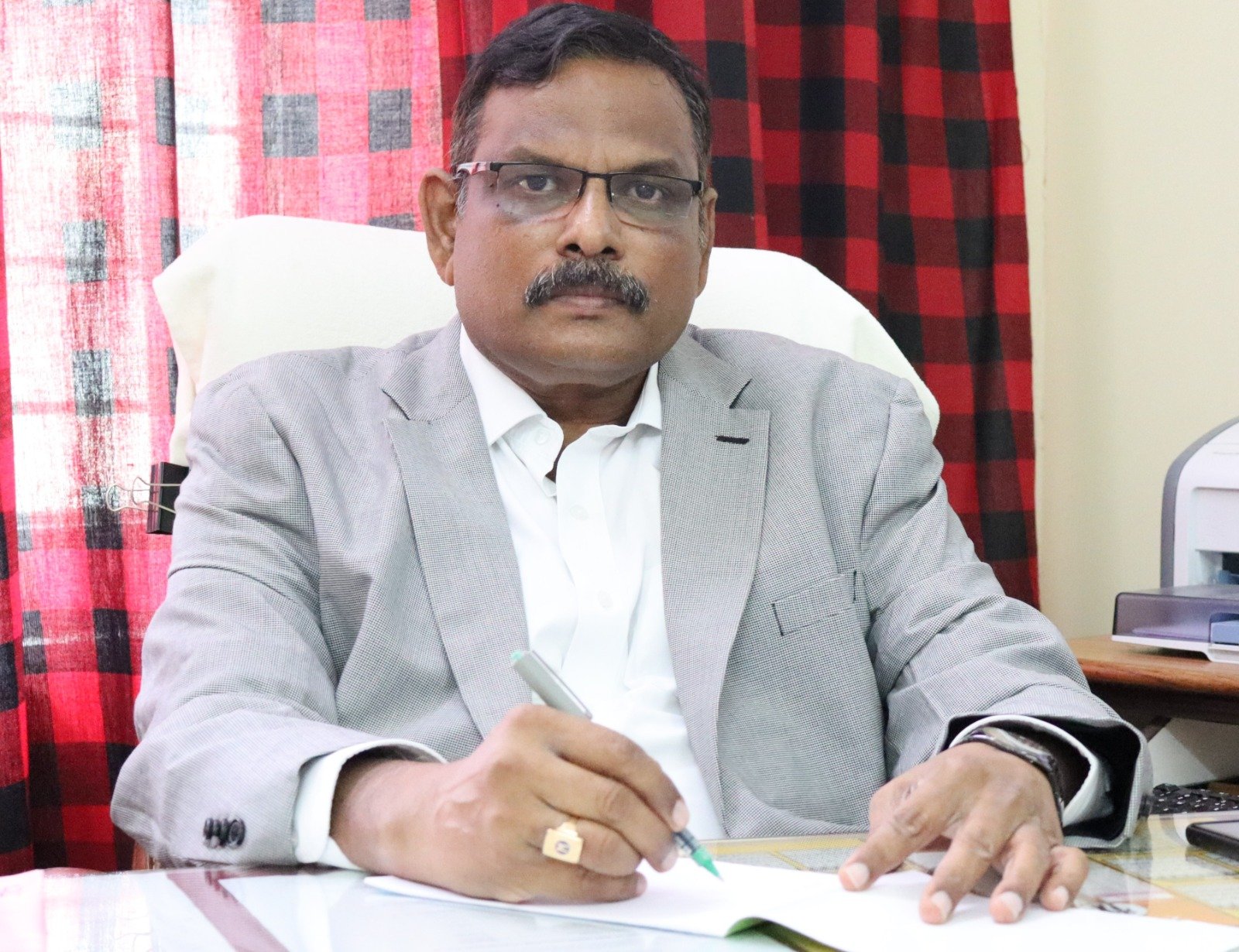
Prof.Balram Marathi
Director of Research
dr@pjtau.edu.in
Prof. Balram Marathi completed his B.Sc. (Ag) and M.Sc. (Ag) in Genetics and Plant Breeding from Andhra Pradesh Agricultural University, Hyderabad. He earned his Ph.D. from the Indian Agricultural Research Institute (IARI), New Delhi, and pursued post-doctoral research at the International Rice Research Institute (IRRI), Philippines. He has over 34 years of experience in teaching, research, and extension.
He has developed one cotton hybrid, five rice varieties, and two hybrid rice parental lines with an outcrossing potential of 60–75%. He has mapped chromosomal regions associated with important traits such as yield, grain quality, floral characteristics, and resistance to brown planthopper (BPH), blast, and sheath blight in rice. He also contributed to the development of the groundnut variety Kadiri 6 (K6), which possesses high oleic acid content and resistance to late leaf spot and rust, using marker-assisted breeding.
Prof. Balram has successfully managed the implementation of externally funded research projects worth ₹6.26 crores from various funding agencies. He has collaborated with IIT Hyderabad, IIT Bombay, and the University of Tokyo, Japan, on high-throughput field phenotyping of rice and maize using drone imaging. Through this collaboration, he developed a technology for differentiating filled and unfilled grains using thermal imaging and filed a patent for it in India.
He has published 60 research articles, 2 books, and 14 book chapters in national and international journals. In addition, he has presented 33 research papers at national and international conferences, published 33 popular articles, and delivered 15 radio and television programmes. Prof. Balram has guided 23 students at the master’s, doctoral, and post-doctoral levels.
He has served as Editor for Frontiers in Genetics and MDPI Plants, and as an editorial board member for the Indian Journal of Genetics and Plant Breeding, Journal of Research PJTSAU, and Rice Research Open Access Journal. He also acts as a reviewer for several reputed scientific journals. Furthermore, he has contributed to shaping the policy framework for Genetically Modified (GM) crops in Telangana State.
His post-doctoral research at IRRI, Philippines, titled “Increasing Hybrid Seed Production through Higher Out-Crossing Rate in Cytoplasmic Male Sterile Rice and Related Materials and Methods”, led to patents being granted in the United States of America (USA), India, and the Philippines.
Prof. Balram has received several prestigious academic recognitions, including:
- Fellow of the Royal Society of Biology, London
- Fellow of the Indian Society of Genetics and Plant Breeding
- Telangana State Best Teacher Award
- Jawaharlal Nehru National Award (ICAR)
- Assam Government Gold Medal, IARI, New Delhi
Dr.Ch.Aruna Kumari
 Full Name: Dr. Ch. Aruna Kumari
Full Name: Dr. Ch. Aruna Kumari
Designation : Assistant Director of Research
Research Station / Centre Name : O/o the Director of Research
Official Address (with PIN Code): Administrative office, PJTAU, Rajendranagar, Hyderabad – 500030
Email ID : arunasujan@gmail.com
Mobile Number: 9866105276
Highest Qualification: PhD
Area(s) of Specialization / Expertise: Seed Dormancy of rice and sunflower
Number of Research Publications: 75
ORCID ID: 0000-0003-3321-2563
H index Google Scholar: 18
H-Index Research Gate: 8
Best Awards:
CSIR Fellowship Young Scientist Award, Best Employee award, Eminent Plant Physiologist award, Rashtriya Shiksha Puraskar award
Research Publications:
- Ch. Aruna Kumari., 2023. Field phenotyping of rice genotypes for heat stress tolerance based on Morphophysiological parameters at reproductive stage, Biological Forum and International Journal, 15(11): 290-397, 5.21
- Ch. Aruna Kumari., CRISPR/Cas 9 tool kit for rice crop improvement: An inclusive review, 2023, The Pharma Innovation Journal , 12(5): 134-141, 5.23.
- Ch. Aruna Kumari., Correlation and Path Analysis for yield and Yield Attributes in Maintainer Lines of Rice (Oryza sativa .L). 2023, International Journal of Bioresource and Stress Management, 14(6):900-908., 5.21.
- Ch. Aruna Kumari., Genetic variability and correlation studies for yield and yield attributing traits in chickpea (Cicer arietinum L.). 2023. The Pharma Innovation Journal. 12(7): 1830-1833. 5.23.
- Ch. Aruna Kumari., A Contemporary view of nitrate signaling and control. 2022. The Pharma Innovation Journal, SP 11(9): 788-794. 5.23.
- Ch. Aruna Kumari., Sensing and detection of stressful conditions by plants. 2022. The Pharma Innovation Journal. 11(12):5620-5626. 5.23.
- Ch. Aruna Kumari., Morphological, physiological and yield parameters in selected green gram genotypes. 2022. Biological Forum-An International Journal. 14(4):1259-1262. 5.11.
- Ch. Aruna Kumari., Effect of accelerated ageing on moisture and viability of rice genotypes. 2022. Biological Forum- An International Journal. 14(3): 625-629. 5.23.
- Ch. Aruna Kumari., Status of Nitrogen poos under important cropping systems in inceptisols and vertisols of northern Telangana, India. 2022. International Journal of Plant and Soil Science. 34923): 1239-1247. 5.07.
- Ch. Aruna Kumari., Microbial biomass and enzymatic activity of major cropping systems in soils of inceptisols and vertisols at Northern Telangana. 2022. International Journal of Environment and Climate Change. 12(5): 50-56. 5.13.
Kammeta Vijay Kumar
 Full Name: Kammeta Vijay Kumar
Full Name: Kammeta Vijay Kumar
Designation : Assistant Director of Research
Department / Discipline : Genetics and Plant Breeding
Research Station / Centre Name : O/o the Director of Research
Official Address (with PIN Code): Administrative office, PJTAU, Rajendranagar, Hyderabad-500030
Email ID : vijay.kammeta@pjtau.edu.in
Mobile Number: 9885551624
Highest Qualification: PhD
Area(s) of Specialization / Expertise:Cotton and Chickpea Breeding
Best Publications:
- Vijay Kumar K., Sudarshan M. R., Kuldeep Singh Dangi and madhusudan Reddy, S. 2013. Character association and path coefficient analysis for seed yield in quality protein maize (Zea mayz L.). Journal of Research, ANGRAU. 41 (2): 153-157.
- Vijay Kumar K., Sudarshan M. R., Kuldeep Singh Dangi and madhusudan Reddy, S. 2013 Variability in yield and its component traits in quality protein maize (Zea mayz L.). Journal of Research, ANGRAU. 41 (3): 113-119.
- Vijay Kumar K., Radhakrishna, K. V., and Pradeep, T. 2016. Stability analysis for garin yield and its characters in maize under normal and drought stress conditions. 11 (Special IX): 6210-6214
- Vijay Kumar, K. V. Radha Krishna, T. Praddep, DVV. Reddy, MHV Bhave. 2018. Genetic Divergence of maize genotypes under normal and water stressed conditions. International Journal of Current Microbiology and applied sciences. 2018, Vol. 7 (6), 1441-1451
- Lingaiah N, Sudarshanam, A., Thirumala Rao V, Prashanth Y, Vijay Kumar, Indudhar Reddy P, Ramprasad B., Raghu Rami Reddy, P., Jagan Mohan Rao P. 2020. AMMI biplot analysis in cotton (G. hirsutum, L.) genotypes for G X enivironment at four agroecologies in Telangana state. Current Journal of applied science and Technology. Vol. 39 (15), 98-103.
- Sreeja Sureddy, Anuradha Ch, Rakesh K Srivastava, Vijay Kumar K and Himabindu Kudapa. 2024. Exploring genetic variability and trait associations with focus on flowering time in chickpea (Cicer arietinum L.). International Journal of Advanced Biochemistry Research, 8(8): 457-463
Contact Details: Prof. Balram Marathi, Director of Research, Administrative Office, PJTAU, Rajendranagar, Hyderabad.
Ph. No: 8332970268
Email: dr@pjtau.edu.in
Strategic Research goals & Global collaborations
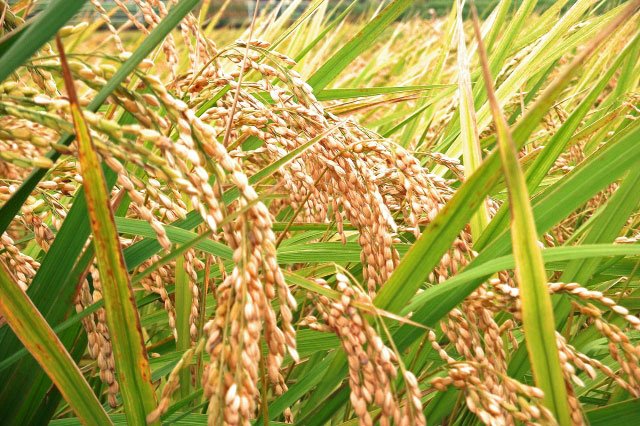
Innovative Research for Sustainable Agriculture
- Emphasizing the development of climate-resilient crop varieties, sustainable farming systems, and optimized resource utilization for enhanced agricultural resilience.
- Advancing post-harvest processing technologies and value addition strategies to improve economic viability and ensure long-term sustainability in agricultural production.
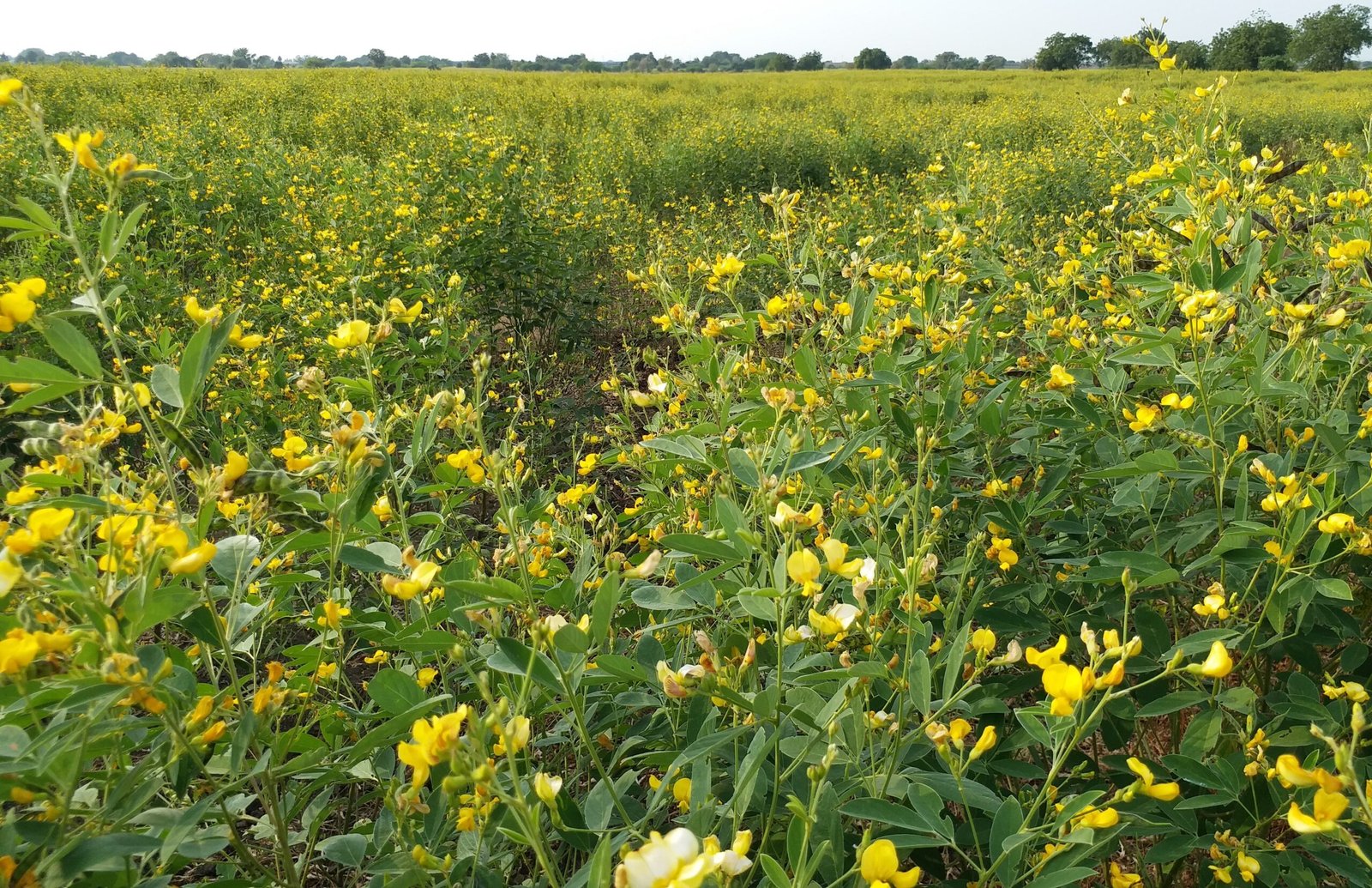
Technology Integration
- Leveraging advanced technologies, including drones, Artificial Intelligence (AI), and the Internet of Things (IoT), to address critical agricultural challenges such as water scarcity, soil degradation, and climate variability.
- Establishing comprehensive value chains for key crops to enhance farmer profitability and promote economic sustainability in the agricultural sector.

Research Alliances
- Strengthening strategic collaborations with national and international research institutions to facilitate knowledge exchange, integrate global best practices, and accelerate transformative agricultural innovations.
